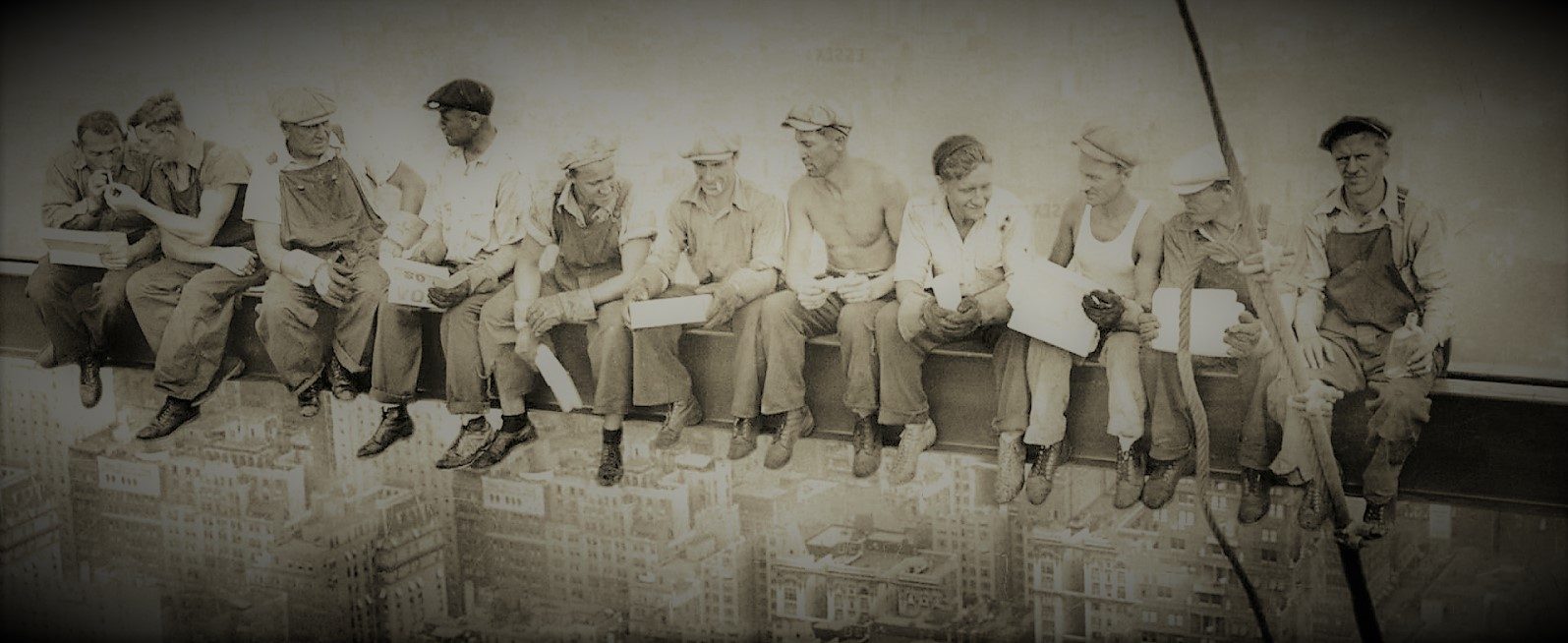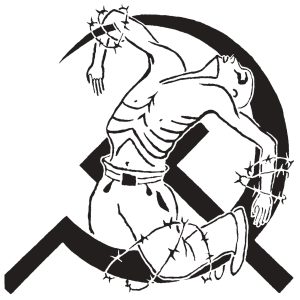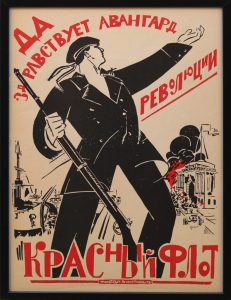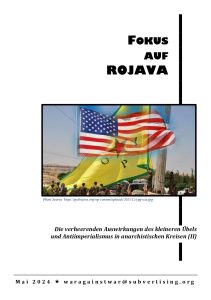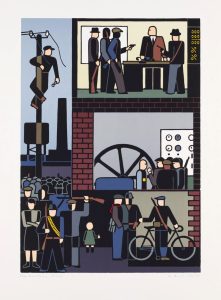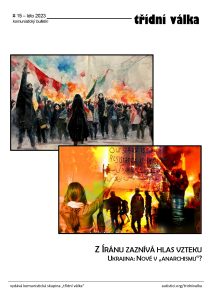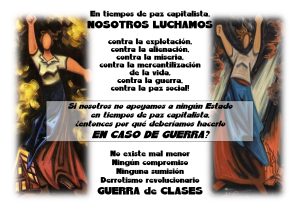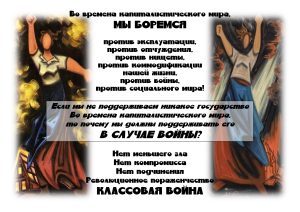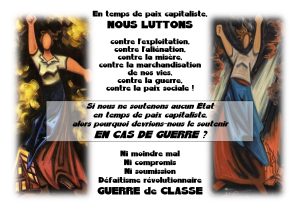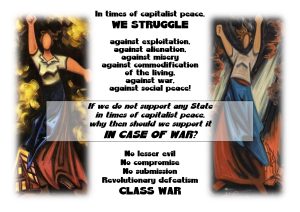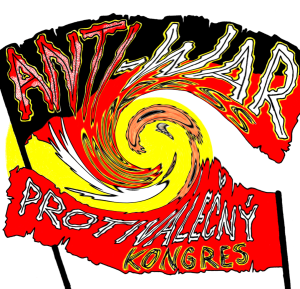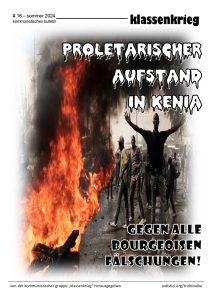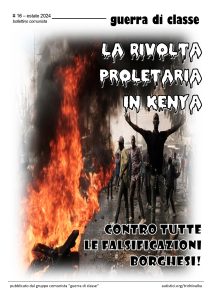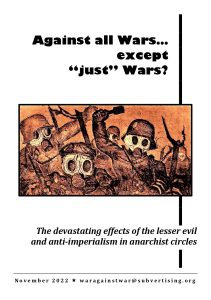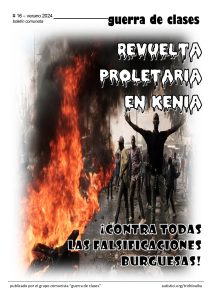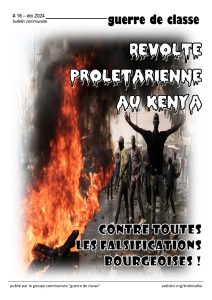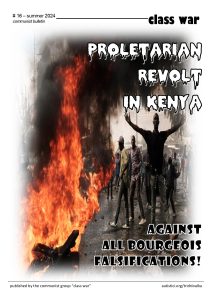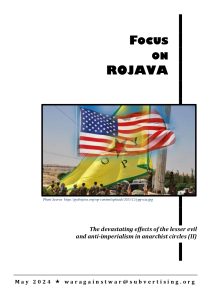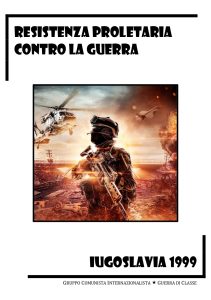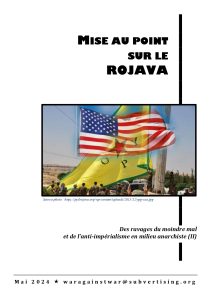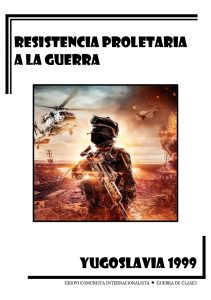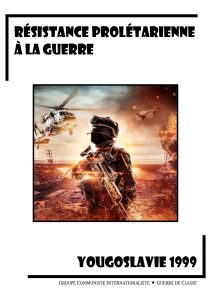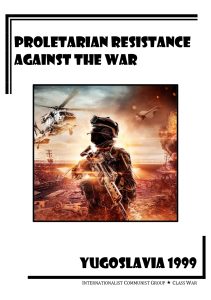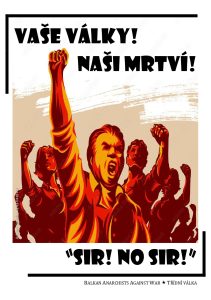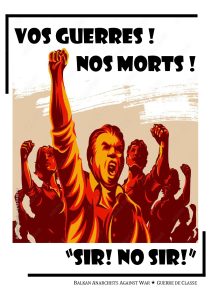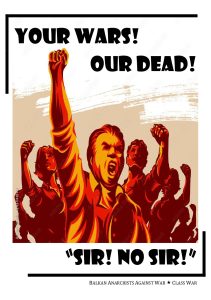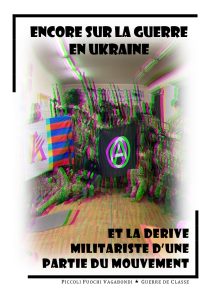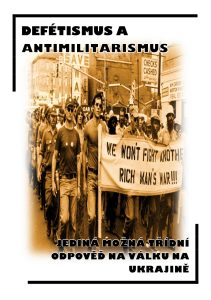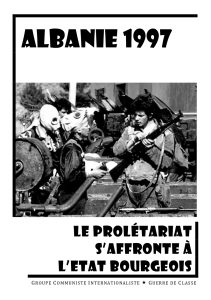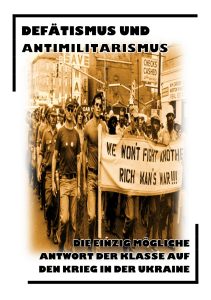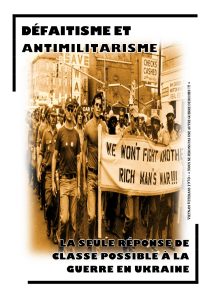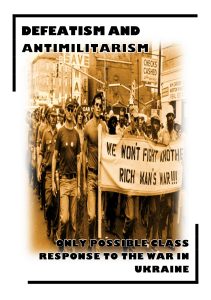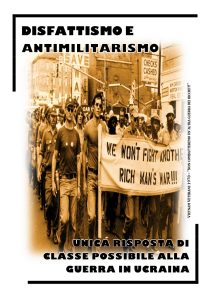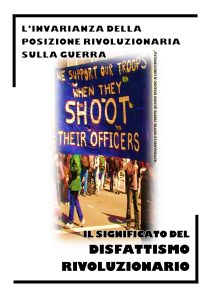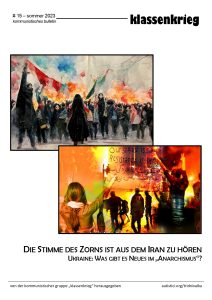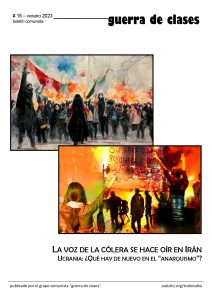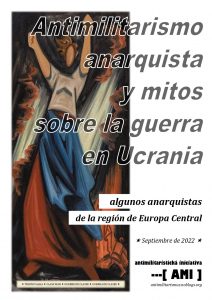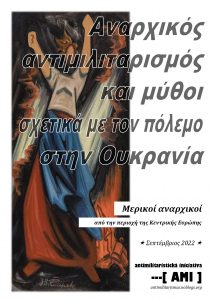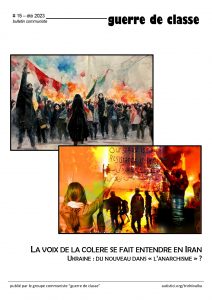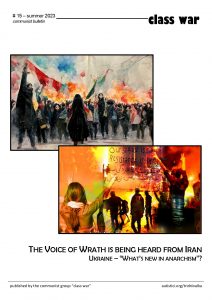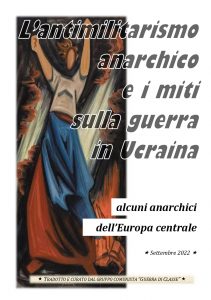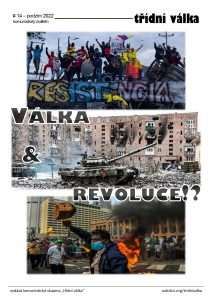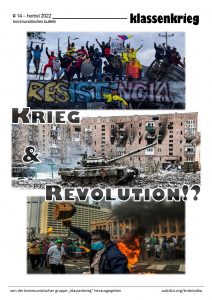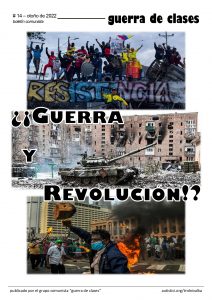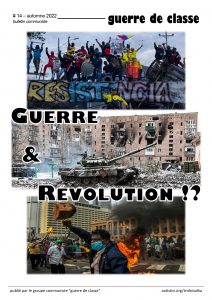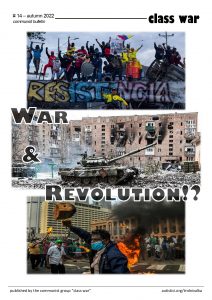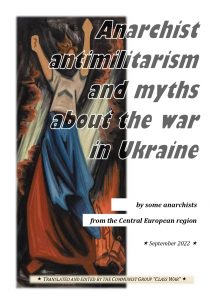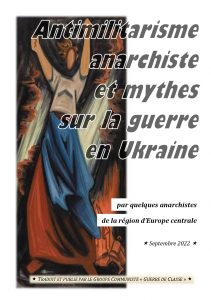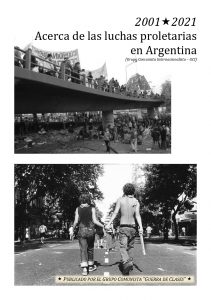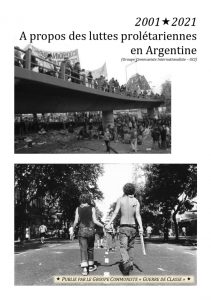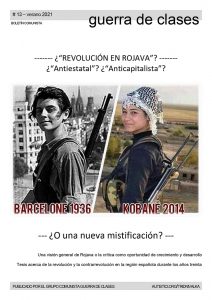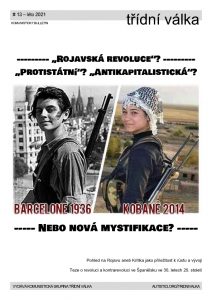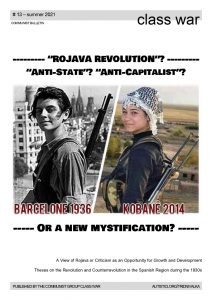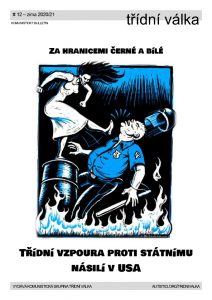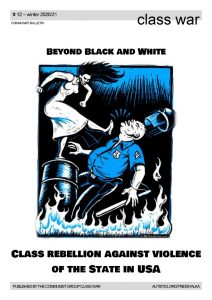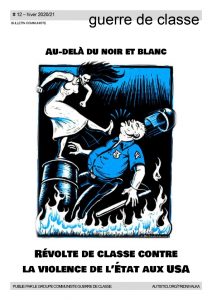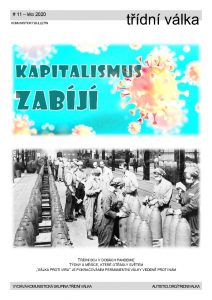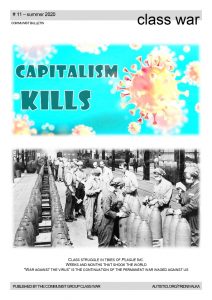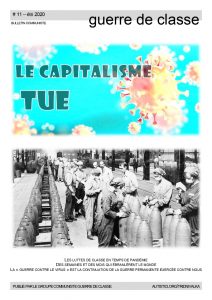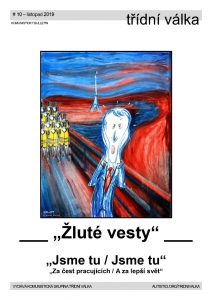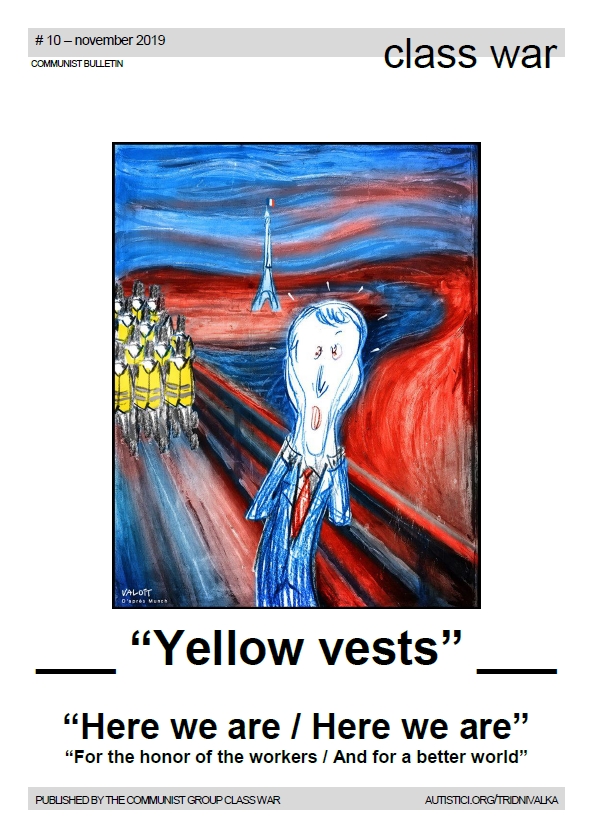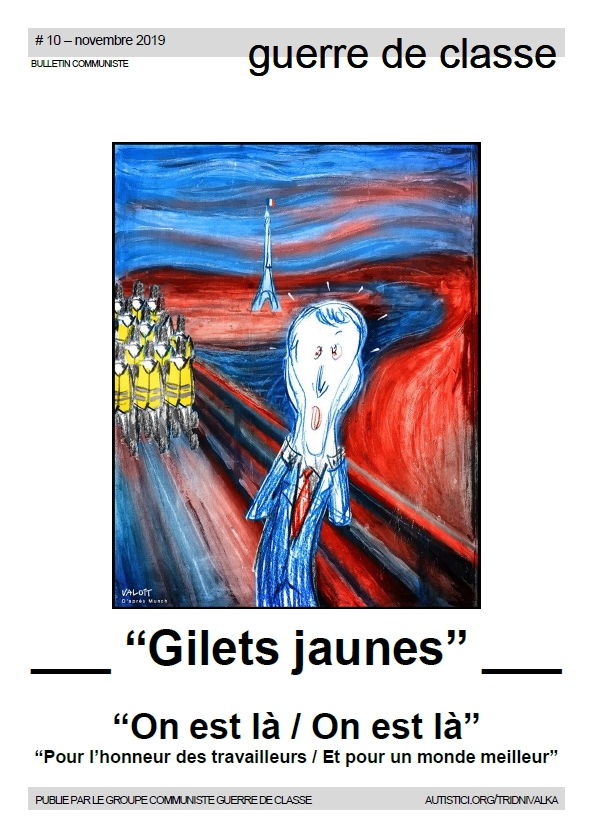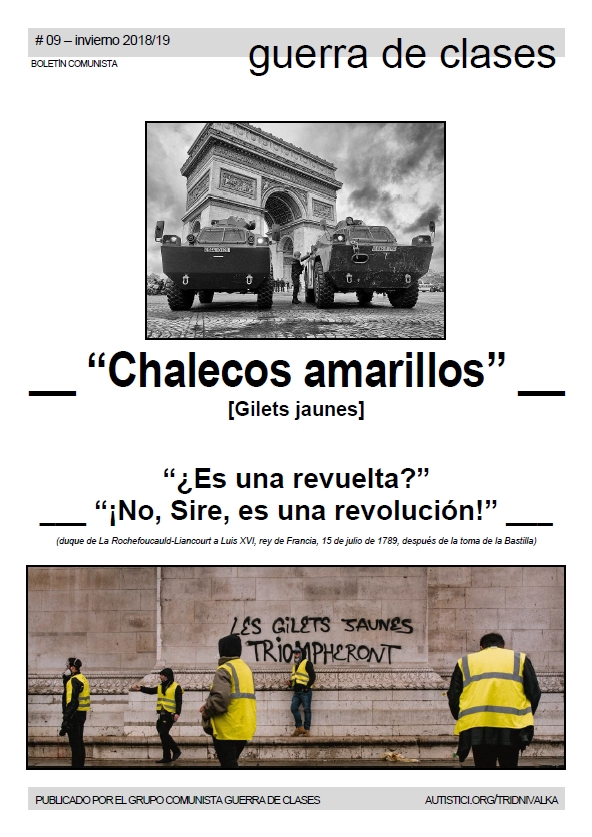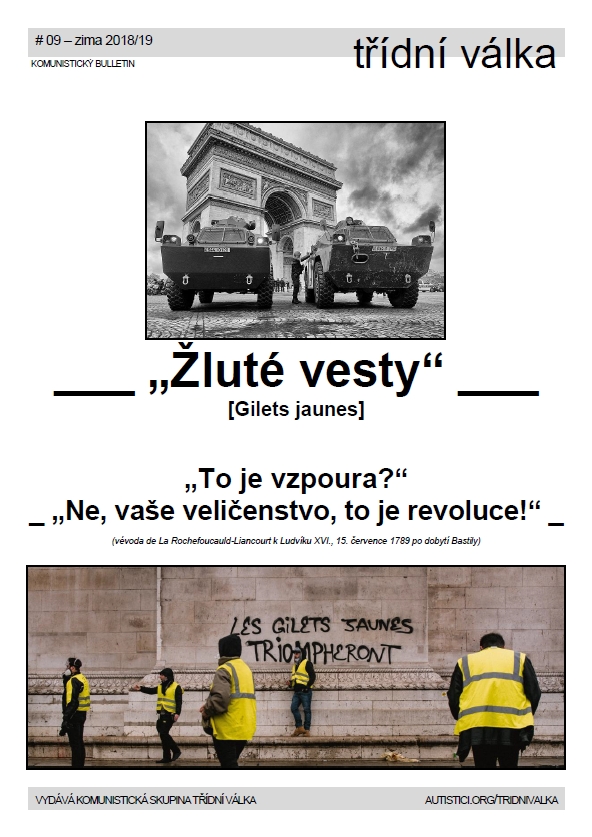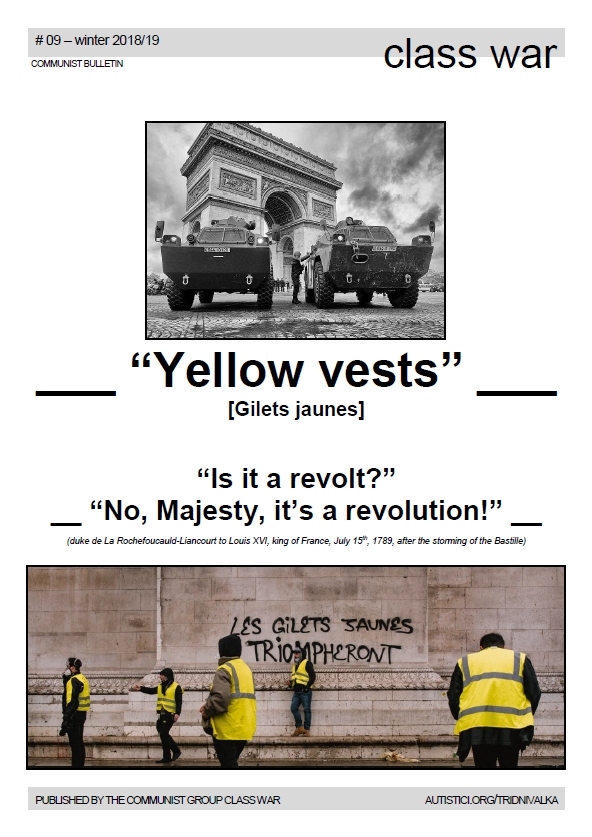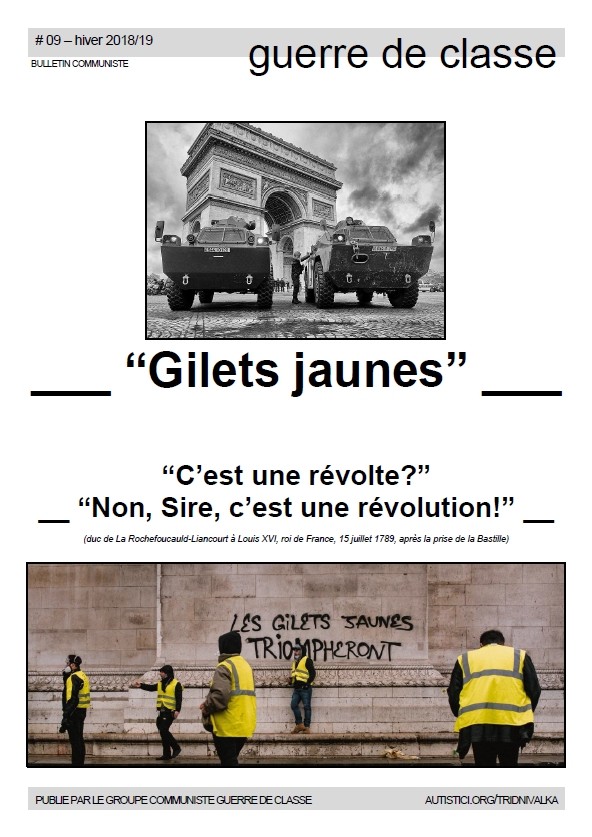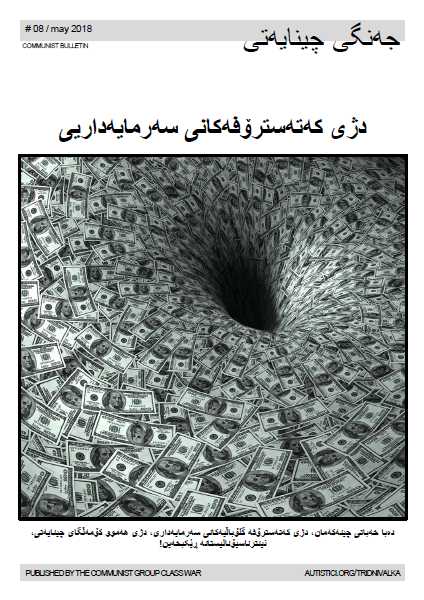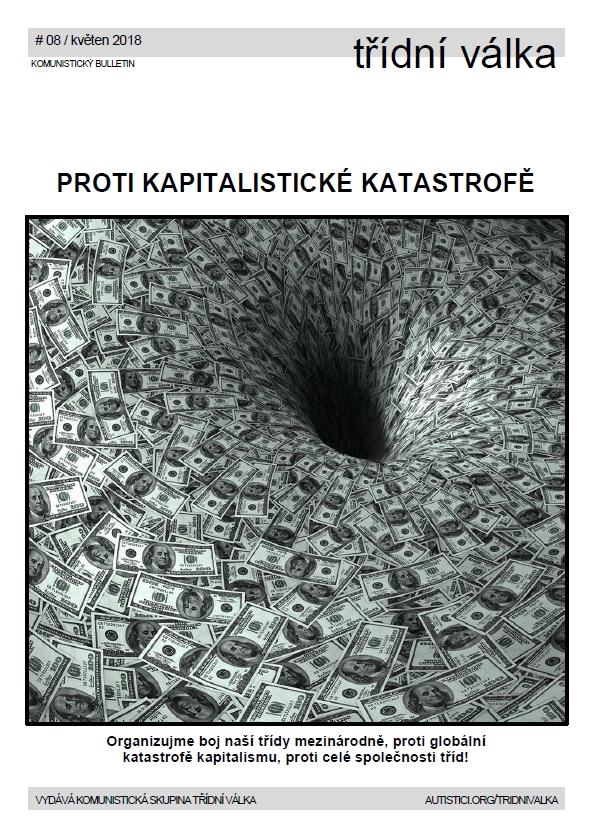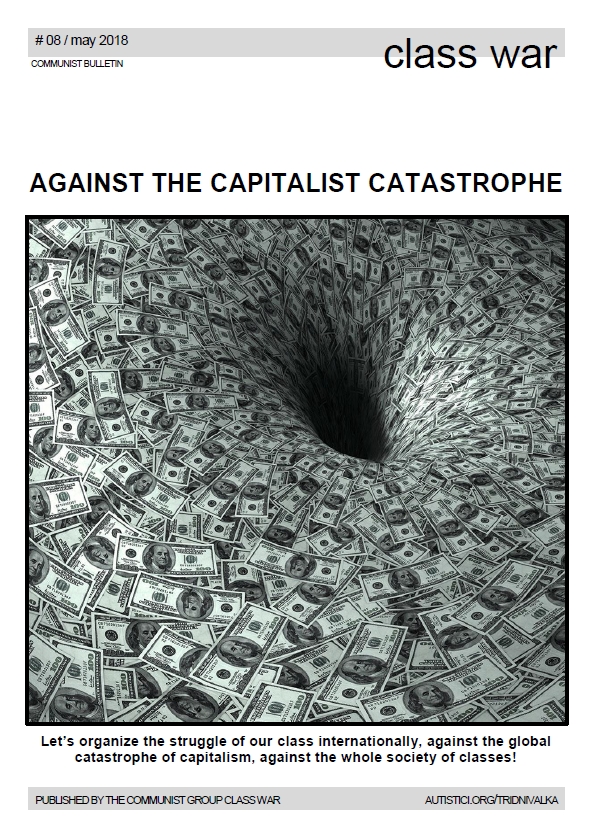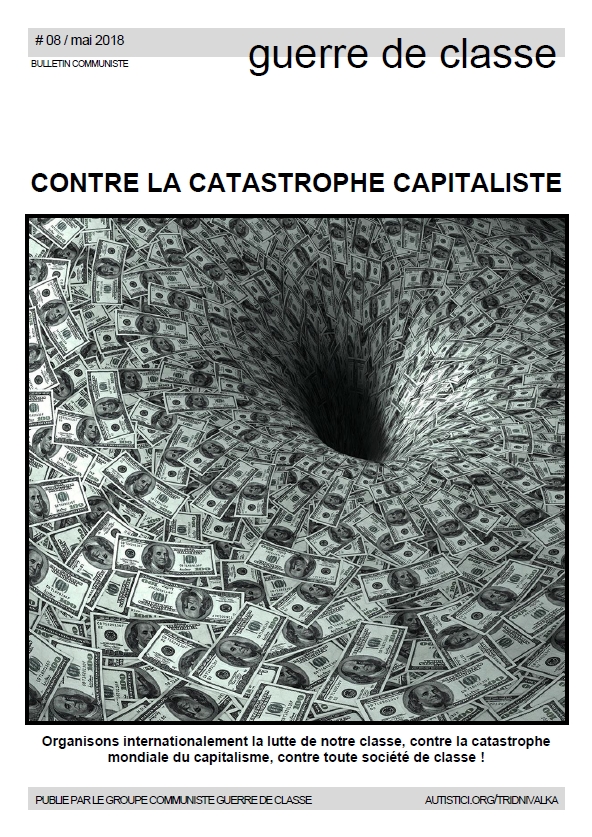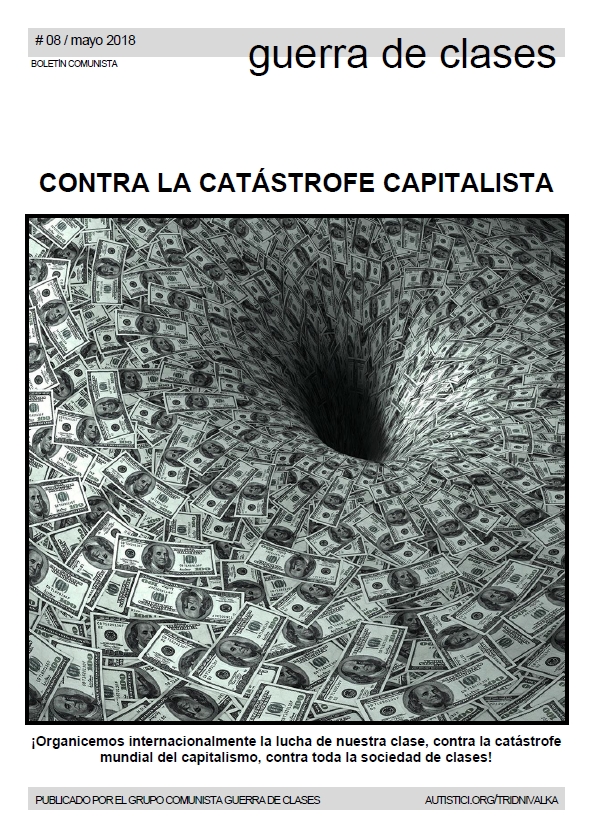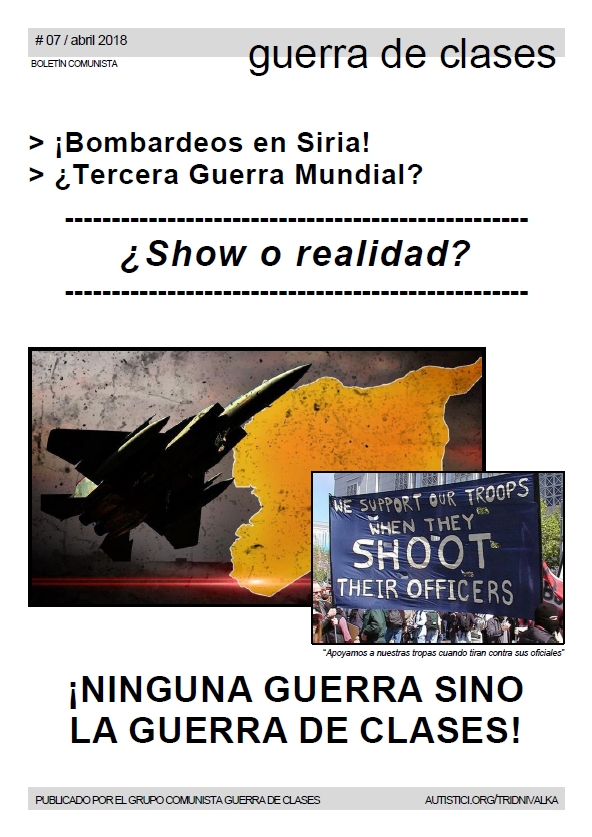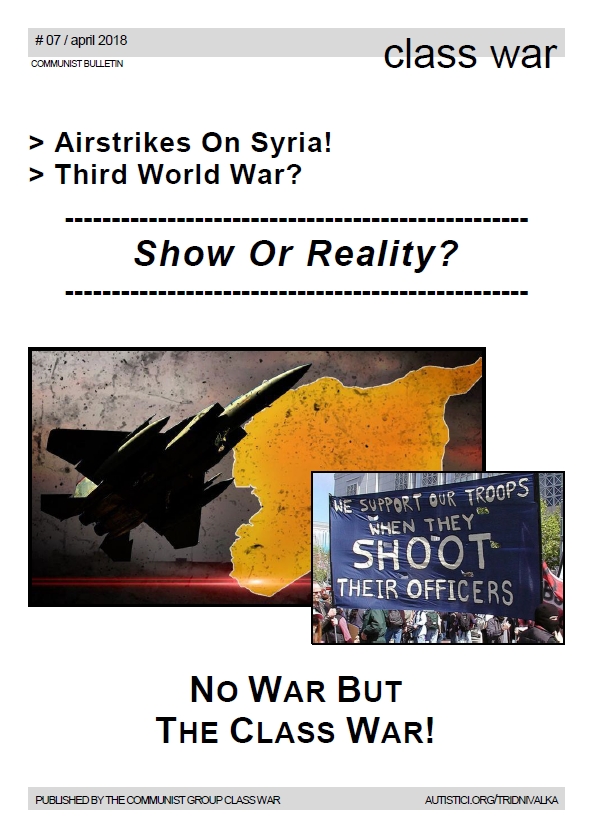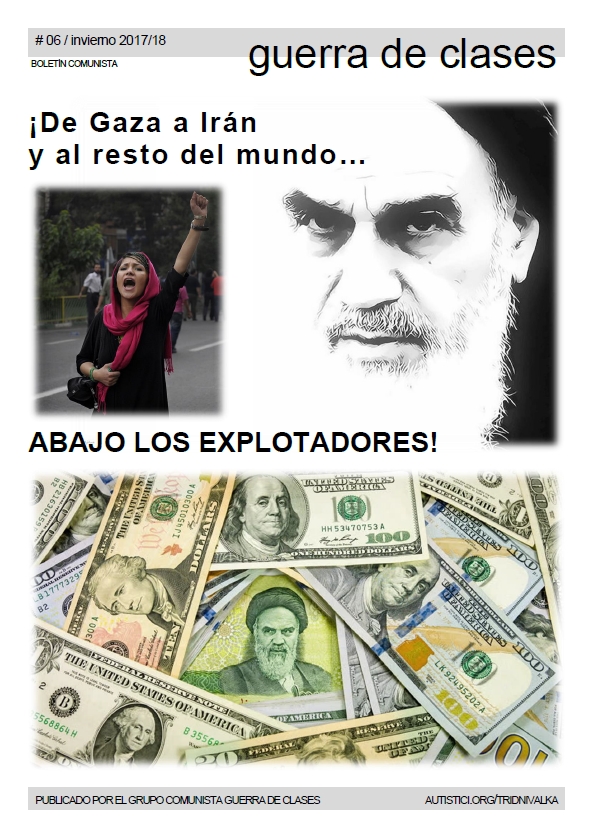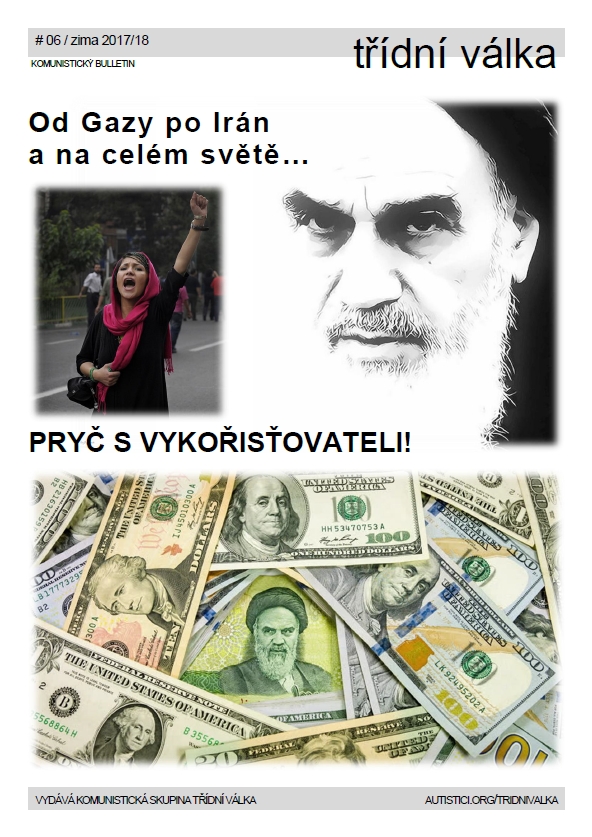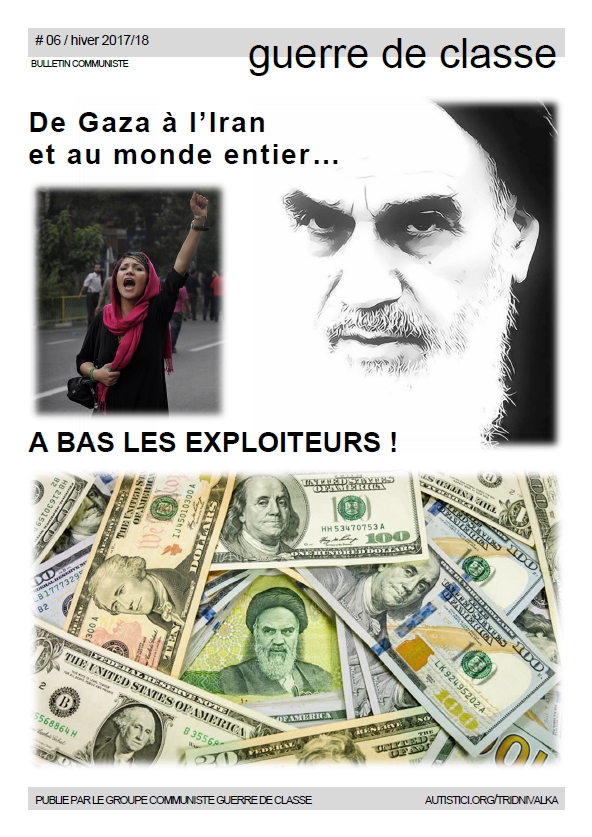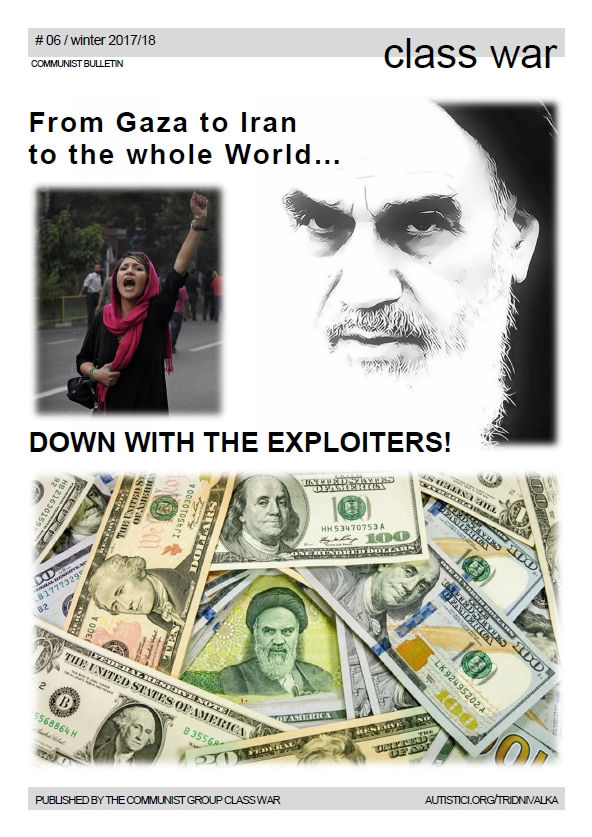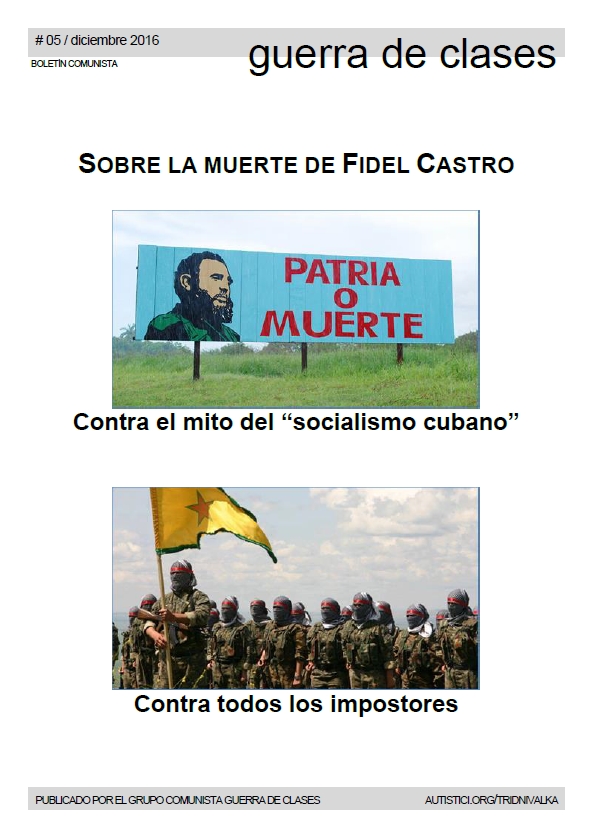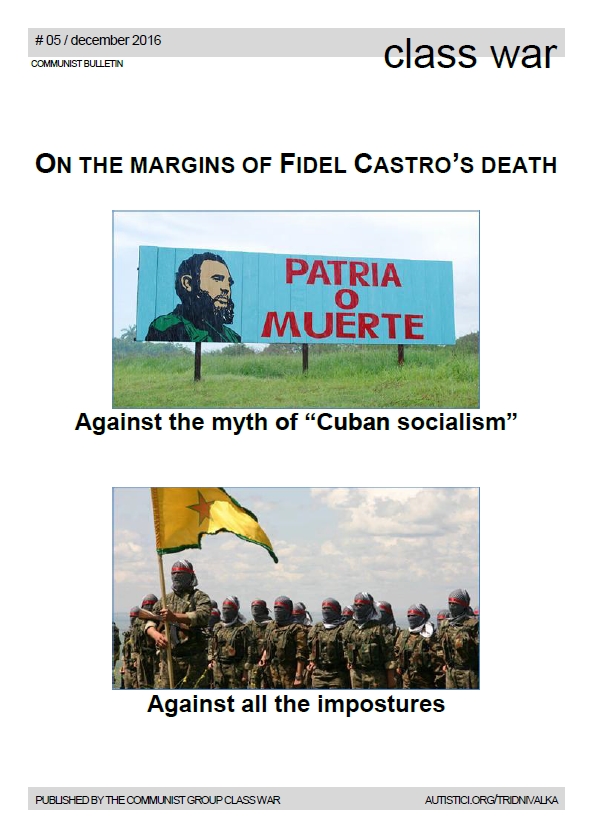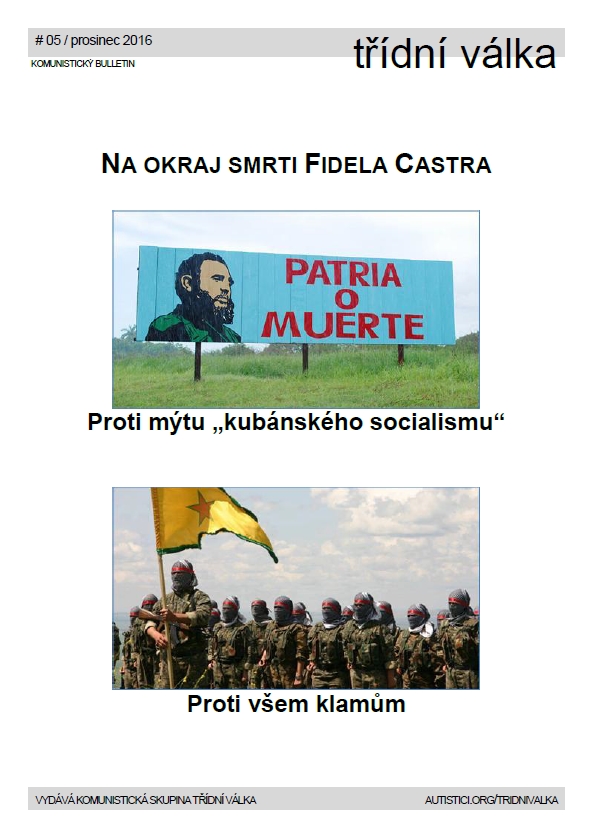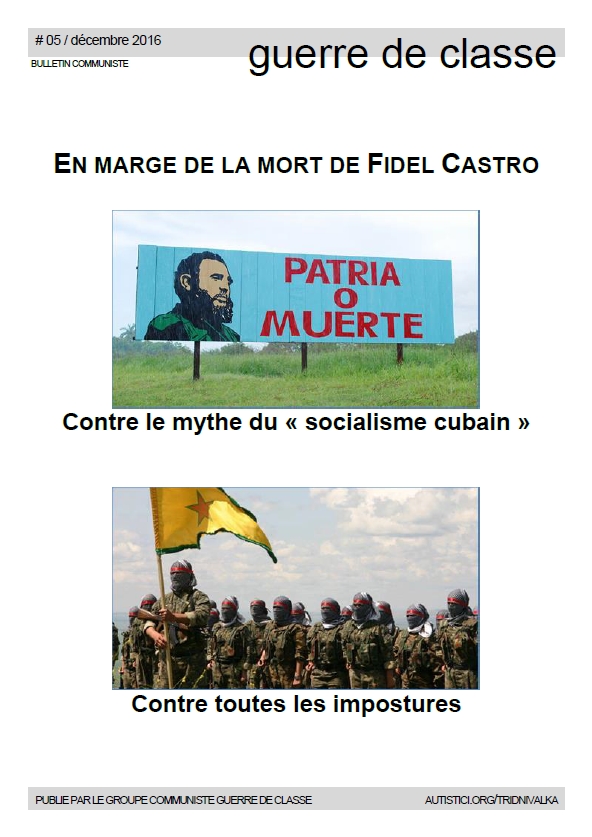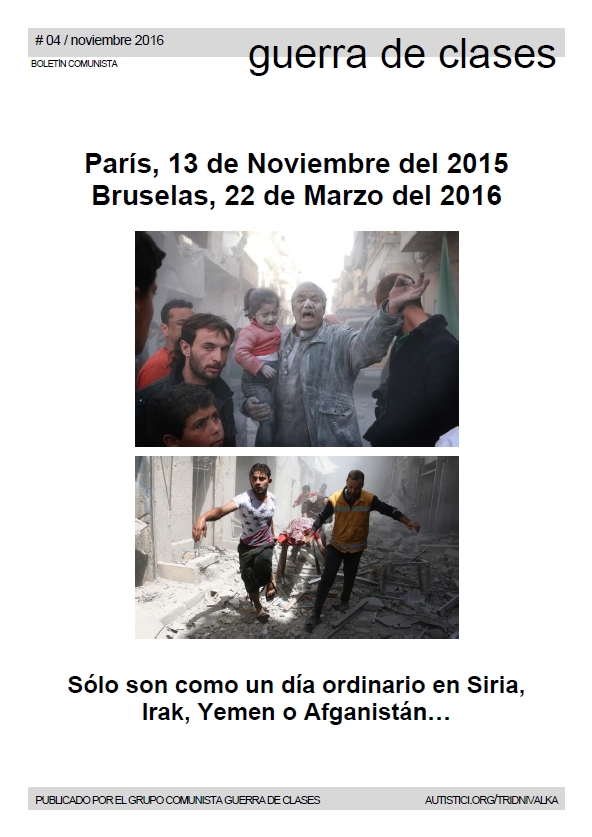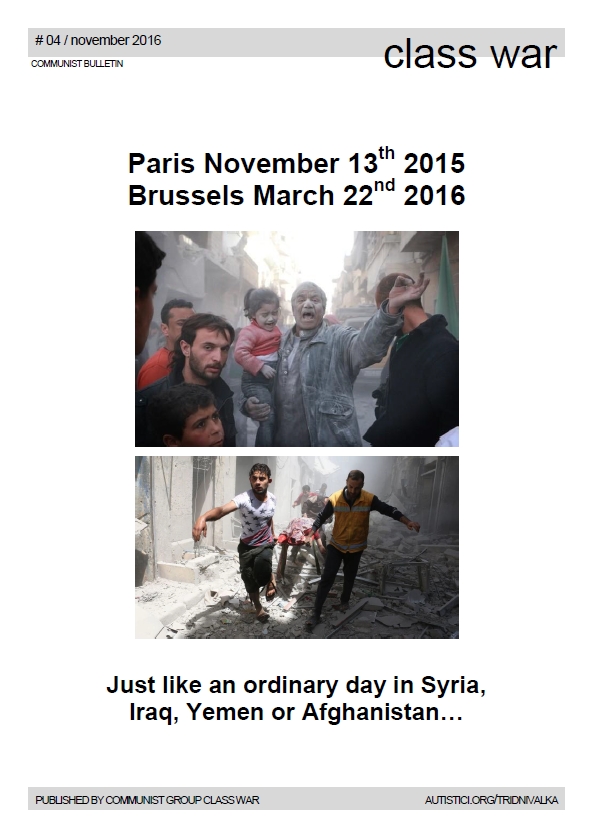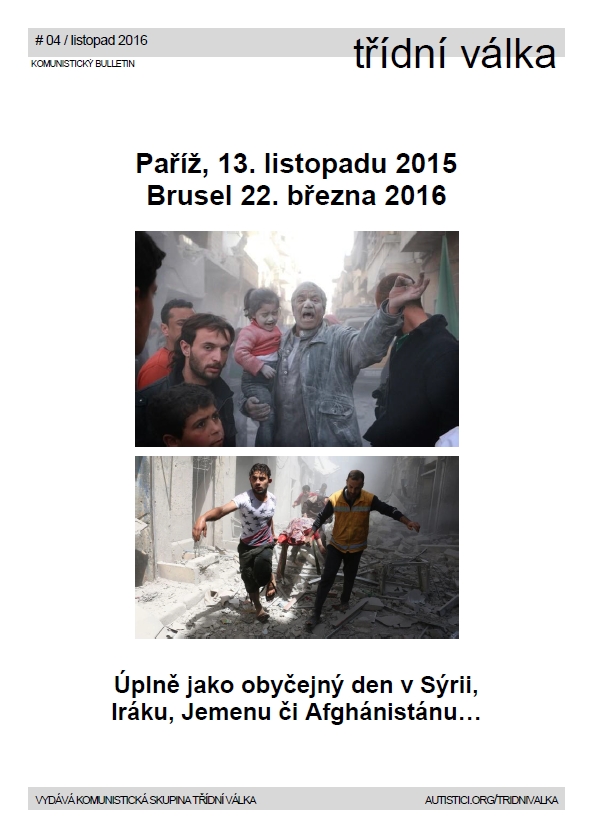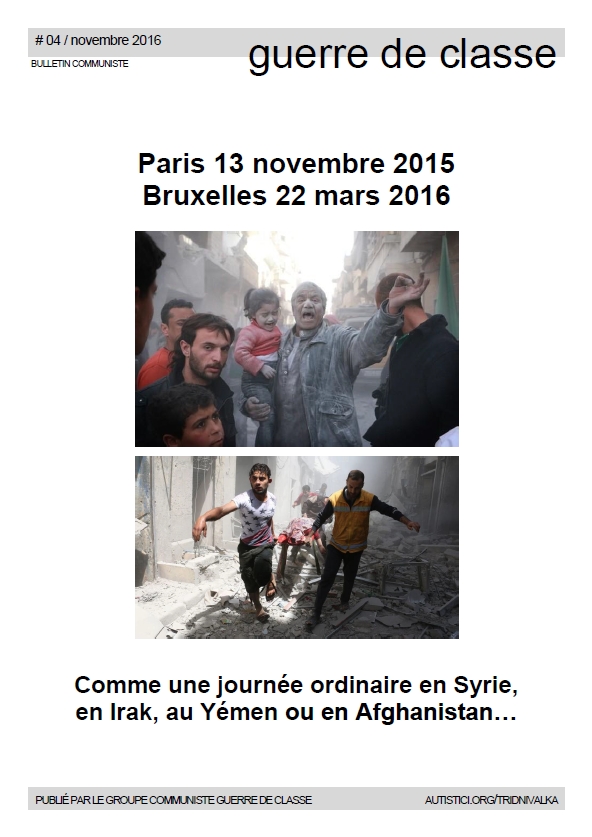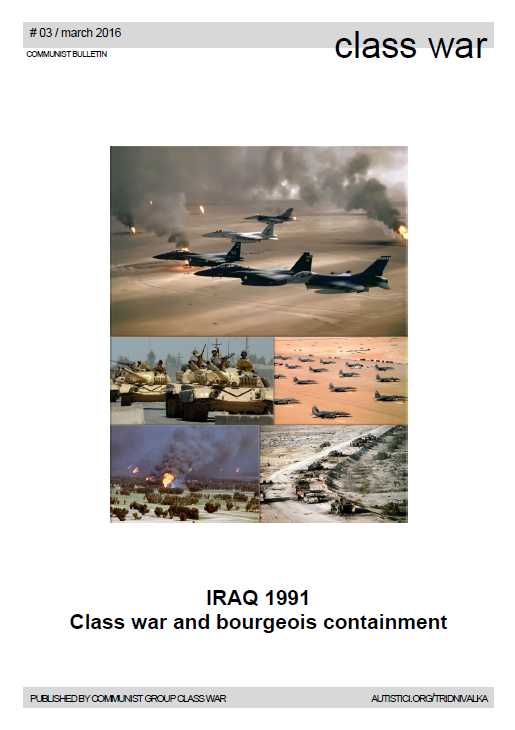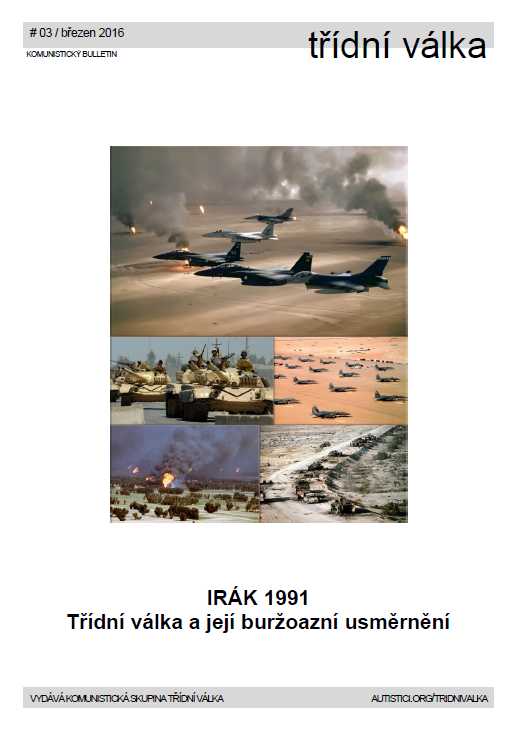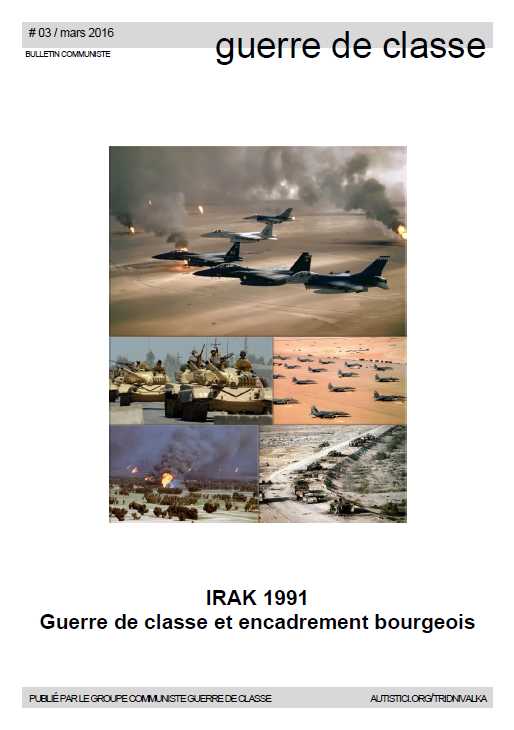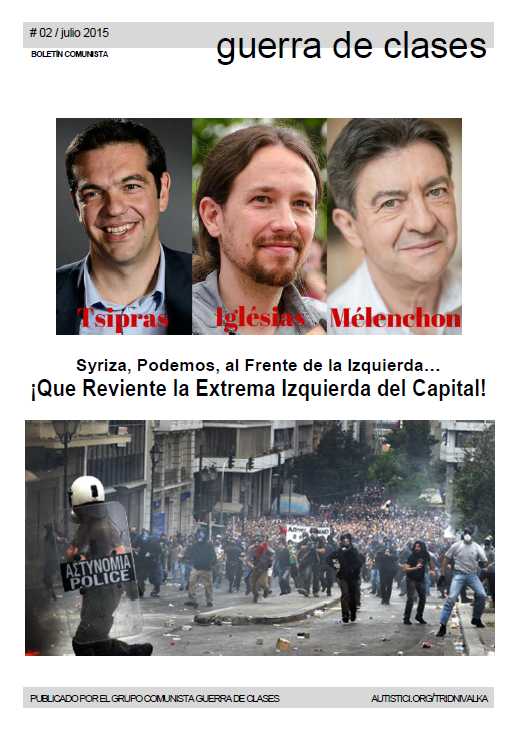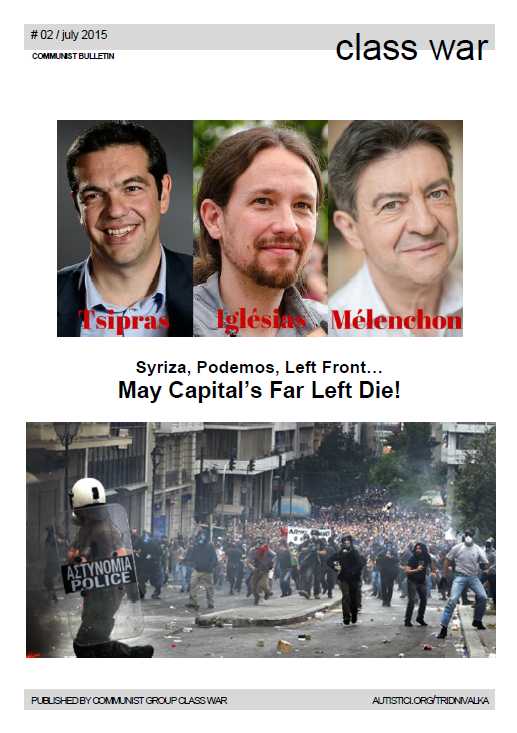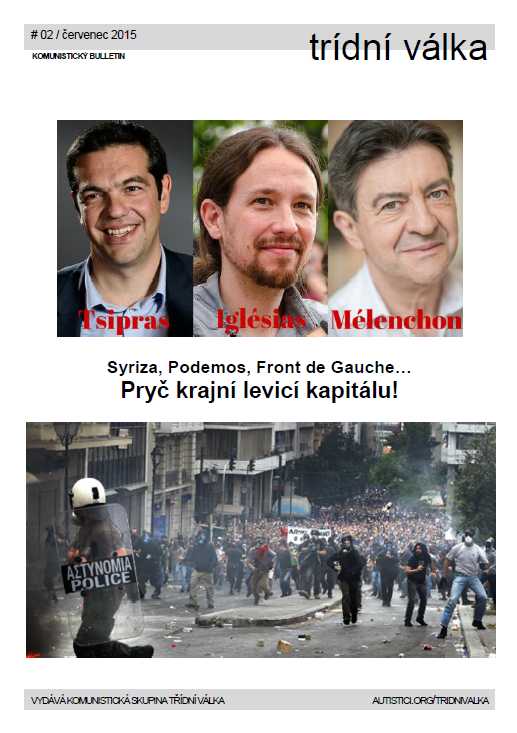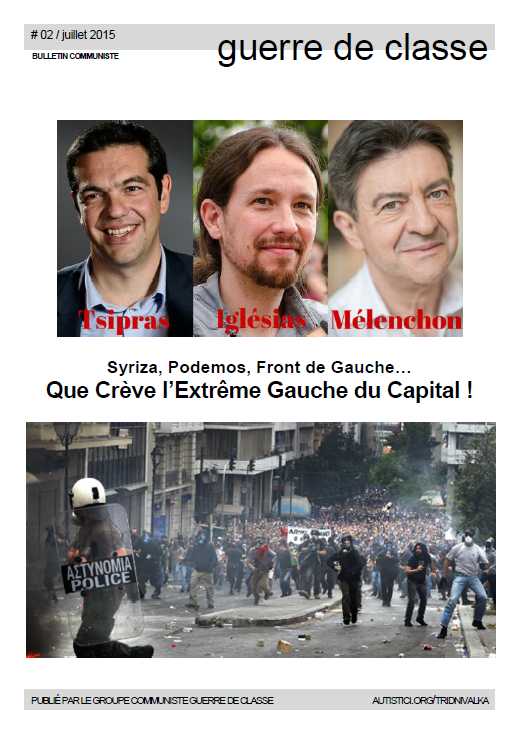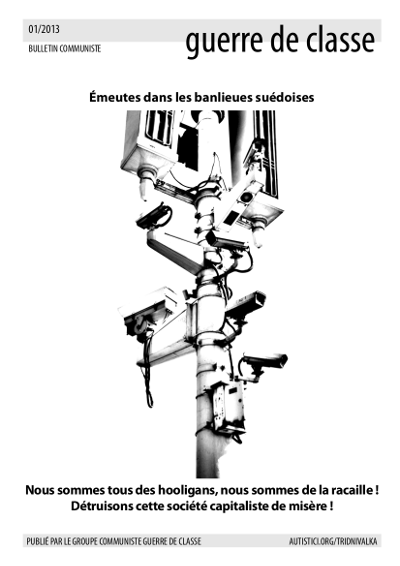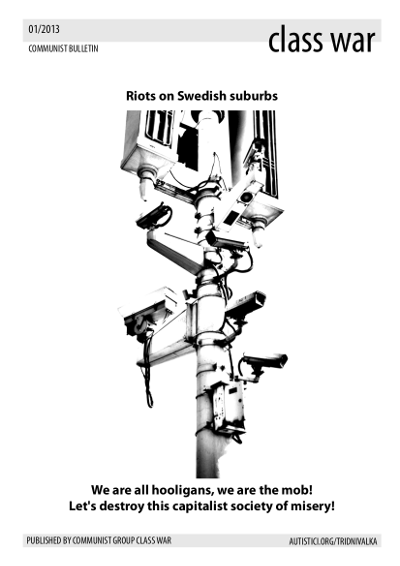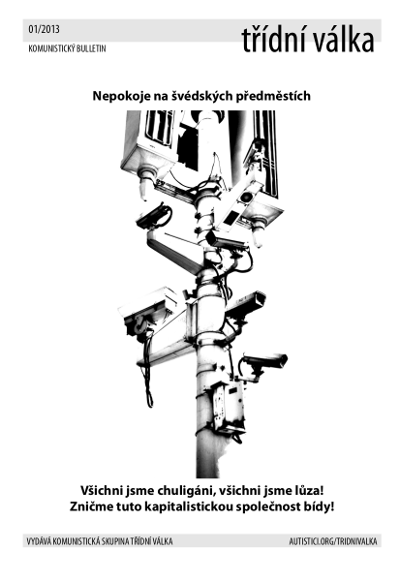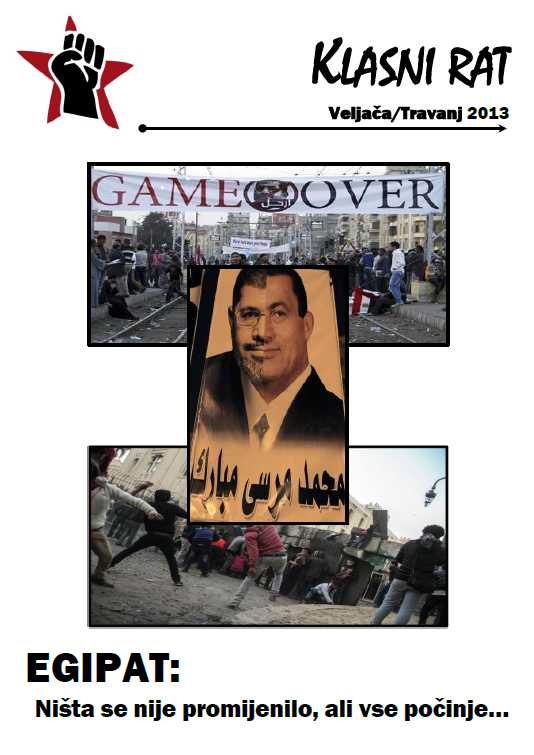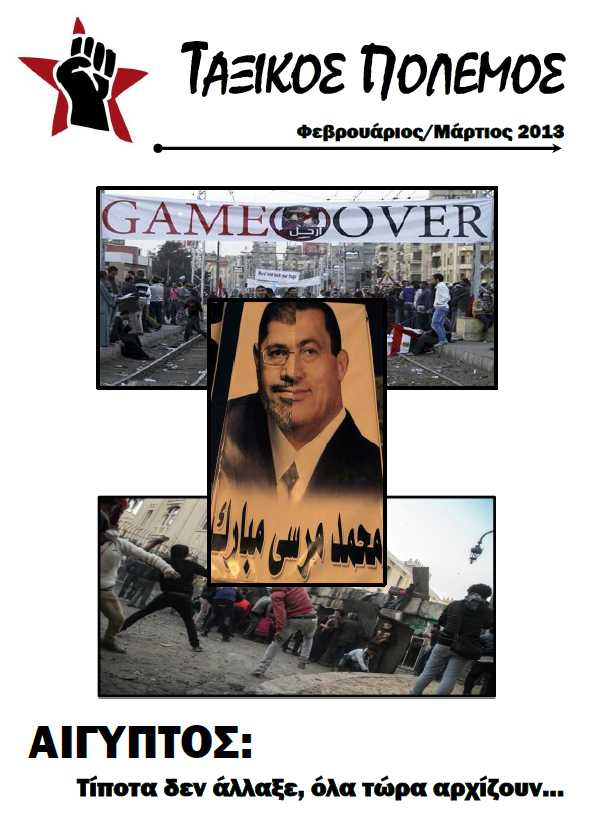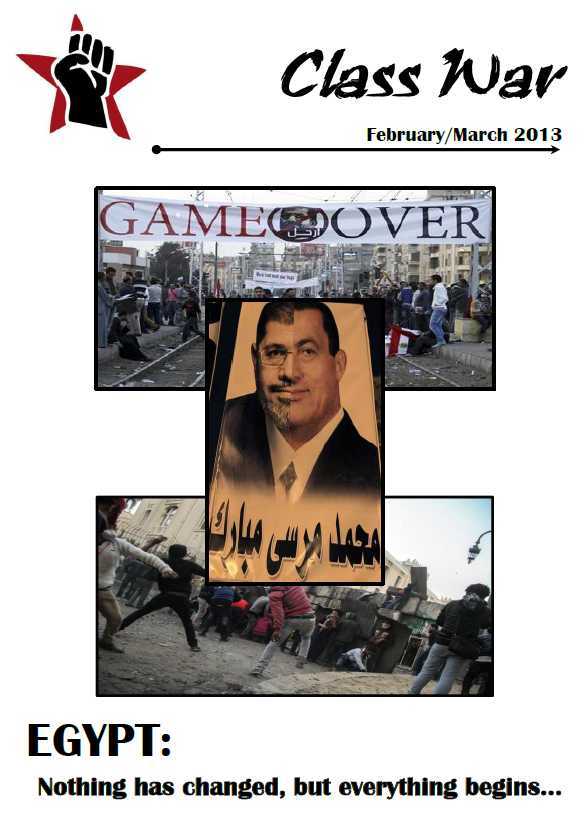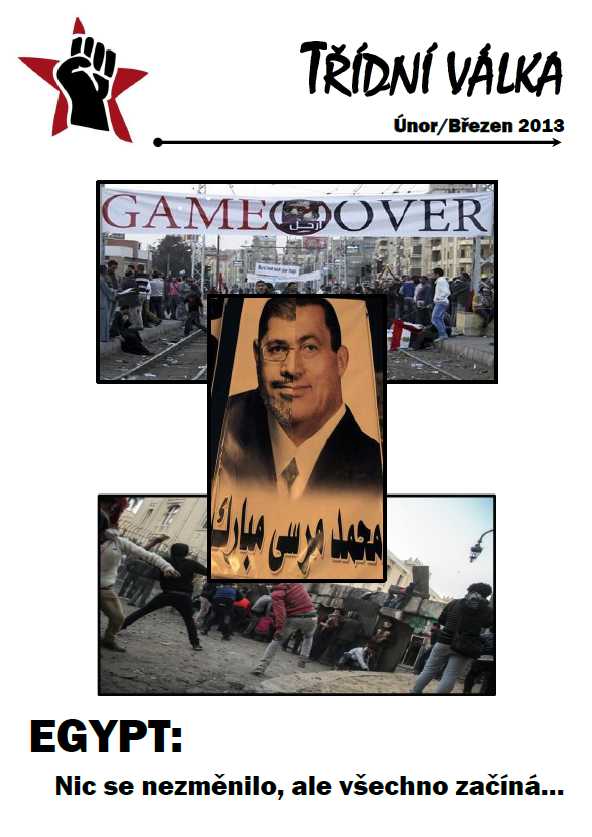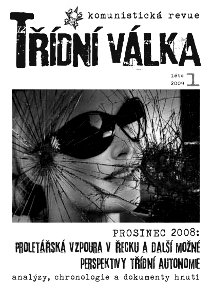| Español | English | Français | Eλληνικά | Deutsch | Português |
Last Update: 20/11/2020
- The pandemics of capital
- Against the Holy Family of capital, we defend our lives by means of social antagonism
- Covid-19: Murder at the Hands of Capital
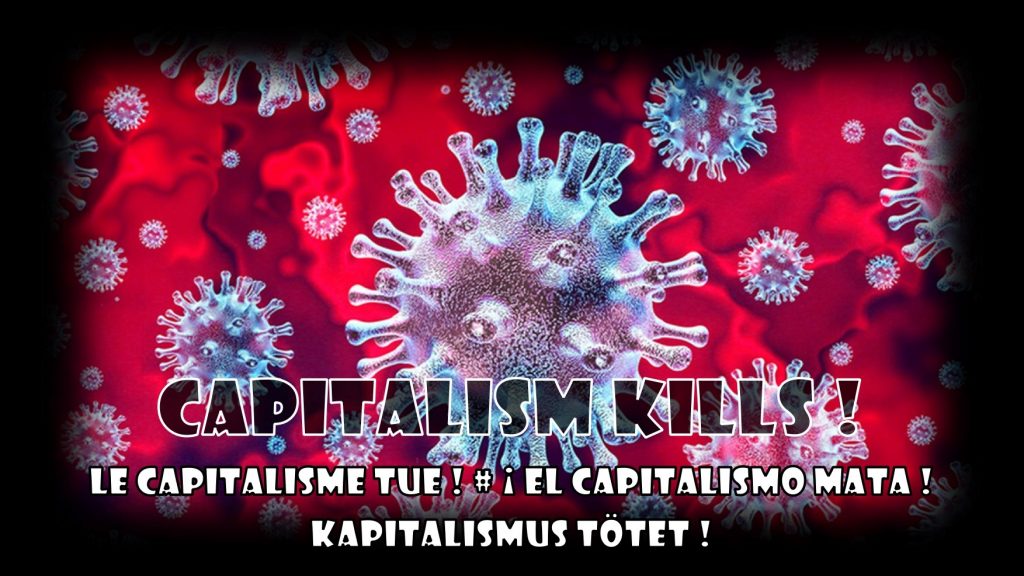
The pandemics of capital
Traduction from Malcontent Editions
It’s difficult to write a text like this one right now. In the current context, in which coronavirus has busted – or soon threatens to – the living conditions of many of us, the only thing you want to do is go out to the street and set everything ablaze, with a mask on if needed. That’s what it deserves. If the economy is worth more than our lives, it makes sense to delay the containment of the virus until the last moment, until the pandemic is already inevitable. It also makes sense that when it’s no longer possible to halt the contagion and it’s needed to disturb – to the bare minimum – the production and distribution of commodities, it be us who are fired, who are forced to work, who remain confined in the jails and the Foreigner Internment Centers, who are obliged to choose between the sickness and the contagion of loved ones or dying of hunger in quarantine. All of this with patriotic cheers and the call for national unity, with social discipline as the executioner’s mantra, with the elegies to the good citizen who bows the head and keeps quiet.
The only thing that you want to do in moments like this is to smash everything.
And this rage is fundamental. But what’s also fundamental is to comprehend well in order to fight better, in order to struggle against the very root of the problem. To comprehend it when everything explodes and the individual rage converts into collective potential, in order to know how to use that rage, to really put an end, without stories, without deviations, to this society of misery.
The virus is not just a virus
Since its beginnings, the relationship that capitalism has with nature (human and non-human) has been the story of a never-ending catastrophe. It is in the logic of a society that is organized through mercantile exchange. It is in the very reason for being of the commodity, in which its natural, material aspect is of little importance, only the possibility of obtaining money for it.
In a mercantile society, the ensemble of the species of the planet are subordinated to the functioning of that blind and automatic machine which is capital: the non-human natural world is no more than a flow of raw materials, a means of production of commodities, and the human natural world is the source of labor to exploit in order to get more money from money. Everything material, everything natural, everything alive is in the service of the production of a social relation – value, money, capital – which has become autonomous and needs to permanently transgress the limits of life.
But capitalism is a system fraught with contradictions. Every time it tries to overcome them, it only postpones and intensifies the next crisis. The social and sanitary crisis created by the spread of the coronavirus concentrates all of them and expresses the putrefaction of the social relations based on value, on private property and the State: their historical depletion.
In the measure in which this system advances, the competition between capitalists propels technological and scientific development and, with it, an increasingly more social production. More and more, what we produce depends less on a person and more on the society. It depends less on local production, rooted in a territory, in order to become increasingly more global. It also depends increasingly less on individual and immediate effort and more on the knowledge accumulated throughout history and applied efficiently to production. All this it does, however, while maintaining its own categories: although the production is increasingly more social, the product of the labor continues being private property. And not merely so: the product of labor is a commodity, meaning, private property destined for exchange with other commodities. This exchange is made possible by the fact that both products contain the same quantity of abstract labor, of value. This logic, which constitutes the basic categories of capital, is put into question by the development of capitalism itself, which reduces the quantity of living labor that every commodity requires. Automation of production, expulsion from work, a decline in the profits which the capitalists can obtain from the exploitation of this work: a crisis of value.
This profound contradiction between social production and private appropriation is manifest in a whole series of derivative contradictions. One of them, which we have elaborated on more extensively in other moments, takes into account the role of the earth in the exhaustion of value as a social relation. The development of capital tends to create an ever stronger demand for land usage, which causes its price – the land rent – to historically tend to increase. This is logical: the more that productivity increases, the more the quantity of value for each product unit declines, and therefore, the more commodities that must be produced in order to obtain the same profits as before. As there are increasingly less workers in the factory and more robots, production requires more raw materials and energy resources. The demand on the land, therefore, intensifies: mega-mining, deforestation, and intensive extraction of fossil fuels are the logical consequences of this dynamic. On the other hand, the concentration of capital at the same time leads to concentrating great masses of labor power in the cities, which pushes the price of housing in the cities to permanently rise. From there follows the worst living conditions in the metropolis, the overcrowding, the contamination, the rent which eats up an ever larger portion of the salary, the workday which is indefinitely prolonged by transport.
Agriculture and livestock production are faced with these two big competitors for the land, the sector linked to the utilization of the land rent, and the one linked to the extraction of raw materials and energy. If the agricultural or livestock farms are to be found in the periphery of the city, perhaps their parcel of land would be more profitable for the construction of a housing complex, or for an industrial zone for which its proximity to metropolis is convenient. If they are more far removed, but their piece of land contains minerals that are useful and in demand for the production of commodities, or even worse, some hydrocarbon reserves, they can’t be realized either in this terrain which capital has destined for more succulent aims. [1] If they want to remain in the same place and continue to pay the rent, they will have to increase productivity like industrial capitalists do. Furthermore they have the incentive of the incessant increase in urban mouths to feed. The agroindustry is the logical consequence of this dynamic: only by increasing productivity, using automated machinery, producing in monoculture, making an ever greater use of chemicals -fertilizers and pesticides in agriculture, pharmaceuticals in livestock production-, even by genetically modifying plants and animals, can sufficient profits be produced in a context where the land rent increases unceasingly.
All this is necessary in order to enframe the emergence of pandemics. As the comrades of Chuang explain well, the coronavirus is not a natural occurrence removed from capitalist relations. Because it’s not just an issue of globalization, meaning, of the exponential possibilities for expansion of a virus. It is capital’s very form of producing which fosters the appearance of pandemics.
In the first place, in order to be able to make agriculture and livestock production more profitable it’s necessary to implant much more intensive forms of production, much more aggressive for the natural metabolism. When many members of the same species – like pigs, for instance, one of the possible sources of COVID-19 and the confirmed source of Influenza A (H1N1) which appeared in 2009 in the United States – are crowded together in industrial farms, their living conditions, their feeding and the permanent application of pharmaceuticals on their bodies weakens their immune system. There’s no resilience in the small ecosystem that constitutes a very numerous population of the same species, immunologically compromised and crowded in confined spaces. Furthermore, this ecosystem is a training camp, a favorable space for the natural selection of the most contagious and virulent of virus. And much more so if this population has a high mortality rate, as occurs in the slaughterhouses, given that the swiftness with which it’s capable to transmit the virus determines its possibility to survive.
It’s only a question of time that one of these virus manages to be transmitted and persist in a host of another species: a human being, for example.
Now let’s say that this human being is a proletarian and lives, like the pigs in our example, crowded in an unhealthy home with the rest of their family, goes to work in a train or bus where it’s hard to breathe at peak hours, and they have a weakened immune system because of fatigue, the poor quality of food, and the air and water contamination. The permanent ascent of the price of living and transport, the increasingly more precarious jobs, the poor eating, in short, the law of the growing poverty of capital causes our species to have very little resilience.
The agriculture industry’s quest for a larger profit and competitiveness in the world economy also has its effects in the proliferation of epidemics. We have a good example in the epidemic of Ebola that spread out throughout all of western Africa in 2014-16, which was preceded by the implantation of monoculture for palm oil: a kind of plantation which bats – the source of the strain that produced the outbreak – are very attracted to. The deforestation of the woods, in virtue of not only the agro-industrial exploitation but also the logging and mega-mining, forces many animal species – and some human populations – to plunge even deeper into the woods or to stay close to them, exposing themselves to carriers of the virus such as bats (Ebola), mosquitoes (Zika) and other reservoir hosts – meaning, pathogen carriers – that adapt to the new conditions established by the agroindustry. Furthermore, the deforestation reduces the biodiversity that makes the forest a barrier for the chains of transmission of pathogens.
Although the most probable source of the coronavirus is situated in the hunting and selling of wild animals, sold in the market of Hunan in the city of Wuhan, this is not disconnected from the process described above. In the measure in which the livestock production and the industrial agriculture spread, they push the hunters of wild foods to penetrate ever more deeply into the woods in search of their merchandise, which increases the possibilities of contagion with new pathogens and therefore of their propagation in the big cities.
The king disrobed
The coronavirus has stripped the king bare: the contradictions of capital are seen and suffered from in all their brutality. And capitalism is incapable of managing the catastrophe that derives from these contradictions, because it can only escape them by resolving them momentarily so that they break out with a greater virulence later on.
To identify this dynamic, essential to the story of capitalism, we can place our gaze on technology. The application of technoscientific knowledge to production is perhaps one of the features which has most characterized this system. Technology is utilized in order to increase productivity with the goal of extracting an above-average profit, in such a way that the company that produces more commodities than its competitors with the same amount of labor time can choose between reducing the price a bit to gain market space or to keep it the same and gain a little more money. However, insofar as their competitors apply similar improvements and all have the same level of productivity, the capitalists find that instead of obtaining extra profits, they have still less profit than before, because they have more commodities to place in the market – which in conditions of competition lowers their price – and less workers to exploit in proportion. That’s to say, what had been presented at first as a solution, the application of technology to increase productivity, rapidly becomes the problem. This logical movement is permanent and structural in capitalism.
The development of medicine and of pharmacology follows this same motion. Capitalism cannot avoid, since its earliest beginnings, sickening its population. It can only try to develop the medical and pharmaceutical knowledge to control the pathologies that it itself facilitates.
Nevertheless, in the measure in which the conditions that make us sick don’t disappear, but even increase with the ever more pronounced crisis of this system, the role of medicine is inverted and can function as a fuel for sickness. The use of antibiotics, not only in the human species, but also in livestock, fosters the resistance of the bacterias and encourages the appearance of strains increasingly more difficult to combat. Something similar occurs with the vaccines for virus. On one hand, they often arrive late and insufficiently in the emergence of an epidemic, given that the mercantile logic itself, the patents, the industrial secrets and the negotiation of the the pharmaceutical companies with the state delay their quick application to the infected population. On the other hand, natural selection will cause the virus to be each time more prepared to overcome these barriers, favoring the appearance of new strains for which the vaccines are still unknown. The problem, therefore, is not in the development of medical and pharmacological knowledge, but in that while the social relations which permanently produce the virus and facilitate its rapid expansion continue to be maintained, this knowledge will only encourage the appearance of increasingly more contagious and virulent strains.
In the same way that the technological and medical development conceal a strong contradiction in capitalist social relations, so it occurs also with the contradiction between the national and international plane of capital itself.
Capitalism is already born with a certain global character. During the Late Middle Ages, long distance networks of commerce were developed which, added to the new pulse of the conquest of the American continent, allowed the accumulation of an enormous mass of mercantile and usury capital. This would serve as a trampoline for the new social relations that were emerging with the proletarization of the peasantry and the imposition of wage labor in Europe. The black plague that devastated the European continent in the 16th century was precisely a fruit of this globalization of commerce, proceeding initially from the Italian merchants coming from China. Logically, the immune systems of the different populations in that era were less prepared to bear sicknesses from other regions, and the tightening of ties at a global level facilitated a spreading of epidemics as grand as the networks of commerce were wide. A good example of that were the epidemics that the colonists would bring which would finish off the majority of the indigenous population in large zones of America.
However, these global networks of commerce would serve, in a paradoxical and contradictory manner, to encourage the formation of national bourgeoisies. This formation went hand in hand with the efforts over many centuries to homogenize a single national market, a single state, and with them two centuries in which one war after another would occur without end, until the point where there were hardly any years of peace in Europe during the 16th and 17th century. The global character of capital is inseparable from the historical emergence of the nation, and with it, from imperialism between nations.
This two-fold in permanent contradiction, the strengthening of the ties at a global level with the national rootedness of capitalism, is expressed in all of its force in the current coronavirus situation. On one hand, globalization permits the pathogens of different origins to migrate from the wildest isolated reservoirs to population centers all over the world. Therefore, for example, the virus Zika was detected in 1947 in the Ugandan forest where it received its name, but it wasn’t until the development of the global agricultural market, with Uganda as one of its links, that Zika could arrive to the north of Brazil in 2015, helped along without a doubt by the monoculture production of soy, cotton, and corn in the region. A virus, with certainty, that climate change – another consequence of capitalist social relations – is helping to spread: the carrier mosquito of Zika and of dengue – the tiger mosquito in its two variants, the Aedes aegypti and the Aedes albopictus – has arrived to zones like Spain due to global warming. Furthermore, the internationalization of capitalist relations is exponential. Since the epidemic of the other coronavirus, SARS-CoV, between 2002 and 2003 in China and Southeast Asia, the quantity of flights coming out of these regions has multiplied by ten.
Hence, capitalism promotes the appearance of new pathogens that its international character extends rapidly. And nevertheless it is incapable of managing them. In the imperialist dispute between the major powers there’s no space for the international coordination that increasingly more global social relations require, and even less, the coordination that this pandemic already requires. The inherently national character of capital, as globalized as you like, entails that the national interests in the context of the imperialist struggle prevail against every kind of international consideration for the control of the virus. If China, Italy, or Spain delayed the taking of measures until the last moment, as France, Germany, or the United States would later do, it’s precisely because the measures necessary to contain the pandemic consisted in the quarantine of the infected and, having arrived at a certain level of contagion, in the partial paralyzation of the production and distribution of commodities. In a context in which the economic crisis that is now breaking out had been gestating for two years, in an ll-out trade war between China and the United States and during the course of an industrial recession, this stoppage could not be permitted. The logical decision of capital’s functionaries was then to sacrifice the health and a number of lives among the variable capital – human beings, proletarians – in order to stick it out and maintain competitiveness in the global market. That it has been revealed to be not only ineffective but even counterproductive doesn’t exempt the logic of this decision: from a national bourgeoisie, sensitive only to the ups and downs of its own GDP, you can’t ask for international philanthropy. That must be left to the discussions of the UN.
And this thing is that the grand contradiction which the coronavirus has pointed out is this: that of the GDP, that of the wealth based on fictitious capital, that of a recession constantly postponed on the basis of liquidity injections without any material foundation in the present.
The coronavirus has disrobed the king, and has shown that in reality we never exited from the crisis of 2008. The minimal growth, the posterior stagnancy and the industrial recension of the last ten years have been no more than the barely noticeable response of a body in coma, a body that has only survived thanks to the permanent emission of fictitious capital. As we explained earlier, capitalism is based on the exploitation of abstract labor, without which it cannot obtain profits, and nevertheless by its own dynamic it is pushed to expel labor from production in an exponential fashion. This extremely strong contradiction, this structural contradiction that reaches its most fundamental categories, cannot be overcome but by aggravating it for later by means of credit, that is to say, the recourse to the expectation of future profits in order to continue feeding the machine in the present. The businesses of the “real economy” have no other way of surviving than to permanently flee further on, to obtain credits and to keep the shares in the stock market high.
The coronavirus is not the crisis. It is simply the detonator for a structural contradiction that has come to express itself since decades ago. The solution that the central banks of the major powers gave for the crisis of 2008 was to continue to flee and to use the only instruments that the bourgeoisie currently has to face the putrefaction of its own relations of production: massive injections of liquidity, meaning, cheap credit on the basis of the emission of fictitious capital. This instrument, as is natural, hardly served to maintain the bubble, given that in the face of the absence of a real profitability the companies utilized that liquidity to reacquire their own stocks and continue to put themselves in debt. As such, today the debt in relation to the global GDP has risen by almost a third since 2008. The coronavirus has simply been the gust of wind that has toppled the house of cards.
Contrary to what social-democracy proclaims, according to which we would find ourselves in this situation because neoliberalism has give a free pass to the greed of the speculators on Wall Street, the emission of fictitious capital – that is to say, of credits that are based on some future gains which will never come about – is the necessary organ of artificial respiration for this system based on work. A system that, nevertheless, through the development of an extremely high level of productivity, has increasingly less need for work to produce wealth. As we have explained earlier, capitalism develops a social production that collides directly with the private property on which mercantile exchange is based. We have never been a species as much as we are now. We have never been so globally linked. Humanity has never recognized itself as such, has needed to as much at a global level, independently from languages, cultures and national barriers. And nevertheless capitalism, which has constructed the global character of our human relations, can only confront it by affirming the nation and the commodity and denying our humanity, can only face the constitution of our human community by means of its logic of destruction: the extinction of the species.
Hobbes and us
A week before this text would be written, in Spain they decreed a state of emergency, the quarantine and the isolation of us all, save for if it’s to sell our labor power. Similar measures were taken in China and Italy, and they have already taken at the moment in France. Alone, in our homes, at a distance of one meter between every person that we meet in the street, the very reality of the capitalist society is made present: we can only relate with others as commodities, not as people. Perhaps the image that best expresses this are the photographs and the videos that have circulated on the social networks at the beginning of the isolation: thousands of people crowded into train and metro carriages on route to work, while the parks and the public streets are closed off to anyone that can’t present a good excuse to the police patrols. We are labor power, not people. The state has that very clear.
In this context, we have seen a false dichotomy appear based on the two poles of the capitalist society: the State and the individual. First of all was the individual, the social molecule of capital: the first voices that made themselves heard facing the alert of the contagion were those of every man for himself, those of let the old die and to each their own, those of blaming each other for coughing, for fleeing, for working, for not doing so. The first reaction was the spontaneous ideology of this society: you can’t ask a society that is constructed on isolated individuals to not behave as such. On the basis of this and of the social chaos that was being produced, there was a general relief at the appearance of the State. State of emergency, militarization of the streets, control of the routes of communication and of transport except for what is fundamental: the circulation of commodities, especially including the commodity labor force. In the face of the incapacity to organize ourselves collectively against the catastrophe, the State is revealed as the tool of social administration.
And it doesn’t cease to be that. An atomized society needs a State to organize it. But it does so by reproducing the very causes of our atomization: those of profit against life, those of capital against the needs of the species. The models of the Imperial College of London predict 250,000 deaths in the United Kingdom and up to 1.2 million in the United States. The predictions on a global level, accounting for the contagion in the countries which are less developed and with a much more precarious medical infrastructure, will arrive foreseeably to many millions of people. The coronavirus epidemic, nevertheless, could have been stopped much sooner. The States that have been the center of the pandemic have acted in the way they had to: placing business profits above all during at least a few weeks more, at the cost of millions of lives. In another kind of society, in a society ruled by the necessities of the species, the quarantine measures taken at their due time could have been punctual, localized, and rapidly superceded. But it is not so in a society like this.
The coronavirus is expressing with all of its brutality the contradictions of a moribund system. Out of everything that we have tried to describe here, this is the most essential: that of capital against life. If capitalism is rotting because of its incapacity to confront its own contradictions, only us as a class, as an international community, as a species, can put an end to it. It’s not a cultural issue, of consciousness, but of a pure material necessity that pushes us collectively to struggle for life, for our life in common, against capital.
And the moment to do so, even if it’s just the beginning, has already begun. Many of us are already in quarantine, but we are not isolated, nor alone. We are preparing. Like the comrades that have risen up in Italy and in China, like those that have been on their feet for some time already in Iran, Chile or Hong Kong, we are going towards life. Capitalism is dying, but only as an international class, as a species, as a human community, can we bury it. The coronavirus epidemic has toppled the house of cards, has disrobed the king, but only we can reduce it to ashes.
19th march 2020
[1] The substitution of fossil fuels for renewable energy doesn’t resolve the problem, all to the contrary: the renewables require much wider surfaces in order to produce inferior levels of energy.
Source: http://barbaria.net/2020/03/29/the-pandemics-of-capital/
Source in Spanish: http://barbaria.net/2020/03/20/las-pandemias-del-capital/
English translation: https://malcontent.noblogs.org/post/2020/03/27/the-pandemics-of-capital-grupo-barbaria/
Against the Holy Family of capital, we defend our lives by means of social antagonism
Traduction from Malcontent Editions
In this article we intend to tackle the questions that are unpinned by the current state of emergency that was decreed by the Pedro Sánchez administration in Spain, along with the measures that were announced on Tuesday, March 17th. We are living in times of profound social crisis, a health crisis that, at the same, is combined with an economic crisis, of change in the climate, psychology, politics, etc. In reality we’re facing the crisis of a world that’s beginning to collapse, that’s exhausting its historical time: it’s the world of capital. It’s the crisis of capital.
National unity? In defense of whom?
We’re told that the sickness and the contagion pay no heed to classes, ideologies, races, that it attacks all equally and we need to respond together, with unity, with social discipline, as spaniards, because we’re members of a great nation. All the political parties are united. Beyond the shades of differences for the necessities of political marketing, unions, businessmen and banks defend the measures of the government.
All together, because we are in the same boat, our homeland, against a common enemy, the coronavirus. It will not defeat us, they tell us. At the end of these months everything will return to the presumed normality of before, to the normality of capital. Pedro Sánchez repeats obsessively, on a regular basis, that this is just a temporary crisis.
The bourgeoisie are frightened.
They are in fear.
And for good reason.
Furthermore they act in a divided manner according to the location. There are governments that tardily took centralized decisions, as did Chinese capital, and others like Italy or Spain that took even longer to react and impose partial isolation on the populations. They are reacting late to the diffusion of the sickness because what really worries them, as we will explain later, is the health of the capitalist economy. In France the measures are much more recent. They didn’t even halt the municipal elections on Sunday, the 15th of March, and in the United Kingdom and the United States it seems like they’re betting on a Malthusian solution, that’s to say, let whoever must die, die (though they will probably have to make a reversal). Meanwhile the virus spreads around the world, and it arrives to Latin America and Africa. The virus propagates at the same speed as the circulation of commodities and capital.
We have all been able to see the contradictions that the state of emergency of the PSOE-Podemos coalition government is heading into. They tell us that what they are worried about is the health of the people and, nevertheless, millions of people go to work every day. The fact of the matter is that the necessities of capital are those that mark the necessities of the society in which we live. The utility of a thing comes marked by its price, by the economic profitability that it generates for the businesses. There is no human utility in manufacturing cars, but there is a social utility that reigns above all, that of capital. If cars are not manufactured, the profits of those businesses diminish and they are forced to close up. That increases the unemployment and the difficulty for proletarians obliged to reproduce their labor power and their lives.
What do we want to emphasize with this? That we live in a world dominated by capital and by value. And this pertains absolutely to the form in which the crisis in course is being met. When we say that capital is the root of the crisis we’re not saying something superficial. What we affirm is that the impersonal machine that is value is that which, with its omnivorous logic, fosters the birth of increasingly more virus, through its tendency to colonize more and more corners of the planet and by how it develops the intensive meat industry. At the same time, it confronts the expansion of these epidemics from the angle of its own logic, which is why it tries to maintain, as much as possible, the skeleton of the production and reproduction of economic activities.
What would be an adequate form of protecting ourselves against this kind of virus? Trying to drastically reduce the social production, to put an end to these limitless megalopolis that are cities today, a consumption management that fulfills the basic human necessities, the end of school as an instrument of indoctrination and of social discipline, the end of people’s subjection to machines, the abolition of businesses, etc. We are enumerating some of the measures established by the immediate revolutionary Program that was developed by Bordiga in the meeting at Forlí of 1952, measures to apply during the revolutionary process for the transition towards integral communism. They are what we as humanity need to apply in order to confront not only the crisis of coronavirus, but more generally the ever more brutal catastrophe that the exhaustion of capitalism pushes us towards. Ultimately it has to do with measures that detain social mobility, meaning the mobility of capital and commodities. A plan in defense of the species is needed: this plan, this program in defense of the species, as well as the real movement that tends to impose it by abolishing the present state of things, is what we call communism.
Capital is incapable of that because its social substance, that which gives it life, is abstract labor, wage labor. This is another lesson that we can surely take from this experience. Without wage labor the functionality of the businesses is ruptured, the economic activities collapse, the society decomposes. Capital is no more than value inflated with value, that is to say, money that is transformed into more money by means of abstract labor, which is the social substance that gives equivalence to all the commodities amongst themselves. This conclusion is also very important because it helps us to extract a new conclusion: what’s imperative is the abolition of wage labor, that of a society that revolves around activities which, from a human perspective, lack sense, but are necessary in order to breathe life into the impersonal and global zombie that is capital today.
From there we can be sure that the virus is not a “black swan”, as the strategists and economists of capital sustain. Meaning, it’s not a foreign element that attacks a system that would be in good health. It’s a virus that is fostered by the very dynamic of capital (like others that have come before and are to come) and which moves at the velocity of the circulation of capital. This is very important to understand the opposition and the firm antagonism that we must have, facing all the ideological discourses that the governments try to sell us, when they say we’re all in the same boat.
It never has been and never will be so. We live in a society that is overrun with social antagonisms, where the interests of capital and its maximization of benefits are opposed to those of us who must sell our labor power in order to survive, and who find ourselves suspended in the air if someone doesn’t “buy” our labor power, always reduced to gears in the impersonal capitalist machinery, our human needs commodified. Therefore, yes, we are talking about antagonism between the proletariat and capital. It is from the perspective of this antagonism that we need to defend our human needs.
They never tire of saying that this is a war and we have to be united. It’s the same strategy that is used in all of the imperialist wars. It’s the strategy of turning us as proletarians into cannon fodder in the defense of their interests, of the interests of capital. In this crisis, what Marx said can be perfectly seen: governments are no more than “the general administrative commission of capital”. It’s the function that determines the organ and, in this case, its function is to allow the respiration not of people, but of capital and its movements, movements that are giving signs of a dangerous paralysis. That’s why they are frightened.
As we have said, their strategy is to turn us into cannon fodder, as they did with our proletarian brothers in other wars, in the name of national unity, the struggle for a greater good (that of capital) and the promise of victory against the presumed enemy (in this case the coronavirus).
In the name of this Holy Family, this national unity, hundreds of thousands of workers are working in call centers, factories, offices or supermarkets, crowded into public transport, trapped on highways, or in rows of tables and chairs, with hardly any space, where they continue to be obliged to subject themselves and exercise the productivity due to capital. And we already know that this society offers just two alternatives: either get sick or be thrown out to the street and go back to being suspended in the air.
And what to say about the Foreign Detention Centers, which thousands of proletarians from other countries are stuffed into for the crime of wanting to improve their lives, or about the prisoners in the jails, that live their lives in confinement (and not just for a few weeks), crowded in wait for the contagion to spread to them.
In other words the unity that is proclaimed is no more than the handcuffs that shackle us to some interests that are not our own and to a boat (capital) that is beginning to sink.
That’s why the struggles that have broken out in the factories such as Mercedes in Vitoria, Iveco or Renault in Valladolid, or the riots like in the Foreign Detention Center of Aluche in Madrid and the ones happening in other struggles that have already broken out in other factories in Italy, are so important. We’re not cannon fodder for capital. This supposition, the defense of our human necessities, is a fundamental premise for the future. And the thing is that the future that we have in front of us is that of a catastrophe of ever more bestial proportions, provoked by the historical exhaustion of capitalism as a global and total system of dominion.
Something very different than what the governors of the left-wing of capital promise us. In one of his discourses in recent days, Pedro Sánchez repeated a thousand times that it’s just a temporary crisis, it’s just a temporary crisis… as if repeating it would help with anything. In reality this global pandemic is added to the more general crisis of value in the society of capital (the expulsion of living labor by the processes of automation and the general decline of the rate of profit), to the social revolts in course that protagonized 2019 and the climatic transformations underway. All this has a common vector, capital and its motions, a natural antagonist, the proletarian revolts in course; and a solution to which the course of the current story can be directed, communism as a life plan for the species, an adequate distribution that satisfies human needs outside of the homicidal logic of capital. We live in interesting times, historical times, of crisis and of catastrophe, of revolts and pandemics. On this horizon revolution becomes a necessity, a necessary instrument that connects the immediate defense of our necessities with the historical objective of a human community that satisfies the ensemble of its needs, denied by capital.
Security or nihilism?
This kind of virus, so contagious, is fought with isolation. We have already explained that this isolation goes against the essence of capital, of its perpetual and infinite movement of production and incessant circulation of commodities. The State tries to realize that partial paralysis of mobility through its instruments: the army, the police, the fines, the punishments and the threats. In these days of state of emergency we’re experiencing one of the dreams of capital, the dream of its origins, which in reality represents that of its twilight: the war of all against all in the natural state, that obliges us to subject ourselves to a sovereign because of the social hollowing and the common fear, a securitarian Leviathan. The social isolation, the atomization of molecules closed up in homes separated from each other, this social hollowing is filled by the State, which wants to convert itself into the heart and blood vessels that unify the community. A fictitious community, without a life of its own beyond that which it tries to confer to the State with its mechanisms of security and of order, of social discipline and repression.
We’re not defending, against the State and its order, against the state of alarm, an individualist nihilism where everyone does what they feel like independently from the common good of the community. This nihilism is no more than the other side of the coin of the fictitious community that is the State: individual atoms that move in all directions without a common aim, like headless chickens, and the State as the only way to to construct a social order in which these atoms converge. Therefore it’s a false dichotomy, in capital, that places order and freedom in opposition, like that what places democracy and totalitarianism in opposition, or Spain and China.
Democracy is the social being of capital. In a world in which human beings are commodities, in which we have to sell our individual labor power, we compete against each other in order to obtain the highest profits for our particular commodity against other commodities. Our common being as proletarians, as a class, as a possible party that is born from the defense of our immediate and historical necessities, is blurred in the atomization of capitalist competition that furthermore reduces us to to being juridical subjects, citizens, isolated from each other, that vote and once every so often, again, isolated. This is the social being of capital, that makes of the State the only possibility for a fictitious common being which, at the same time as it isolates us as human beings, connects us incessantly as commodities. This is again the big problem that capital has, in its internal exhaustion, in a crisis like this. It isolates us as people and human beings but it connects us as commodities. The movement of capital is that of people subordinated to the movements of things and of machines. Isolated from one another we only communicate through them, the things, in their form as commodity. This is what Marx referred to when he spoke of the fetishism of the commodity and of capital.
The coronavirus has placed a debate on the table about the political forms of the States to confront the crisis, advocating, in some cases, the management of more centralized States like China. For us, all these debates that differentiate in a substantial way between dictatorial and democratic regimes, from angle of political formality, between China and the western parliaments, are secondary. All the modern regimes are equally democratic and totalitarian. We live in a democratic totalitarianism that perfectly expresses the social character of capital, in its individual essence (as isolated atoms) and in the totalitarian tendency of which the State and the commodity invade our lives. And this is universal. It’s a lesson that capitalism and its democracies learned from the fascisms after 1945, militarily defeated but victorious in some of their teachings with which they tried to breathe life into a capital in crisis.
As the comrades of Chuang say we’re living in the middle of an inverted general strike. In contrast to a general strike we live live isolated, on account of the state of emergency, but we’re all raising many questions, important questions. We’re living in a cathartic moment. Why are we closed in? Will it be for a long time? What will our future be like? Will my loved ones die? Why do they send me to work? What will happen to me if I become unemployed? What kind of world are we living in? Will it be something temporary? We can reply to some of these questions strongly, above all the last one: no, it’s not a question of a temporary crisis. The world of capital, slowly but irreversibly, is falling down, is entering a state of collapse that isn’t the one the ecologists and de-growthists have been selling. Capitalism will not disappear in its collapse, nor will it decomplexify, but in its all out catastrophe it threatens us with extinction if we aren’t capable of putting an end to it and organizing a plan for the life of the species. All of the possibilities are placed in this direction. It’s not a utopia. And at the same time, we’re far, terms of consciousness, from this historical objective, from a horizon of possibility alternative to capitalism. We’re materialists and not luminaries, we know that it’s from the class struggles that have developed in the latest period and those that surely will come in the future, where this historical necessity and the possibility to invert the praxis of capital will be born. The praxis of capital is homicide, homicide of the living and of the dead.
Fictitious capital and bourgeois plans
The crisis of the coronavirus accelerates and is linked to the more general crisis of capital. It’s very important to understand this, facing the fiscal and monetary policies that the different european governments are implementing in order to halt the current economic paralysis.
The crisis provoked by the coronavirus invades the body of the patient, capital, which isn’t exactly in good health, a chronically sick patient that has been worsening in health in the last decade. The origin of the sickness is an irreversible metastasis. The destiny is sure and certain: the death of capital from its historical exhaustion, by the exhaustion of value and of its social substance, work. The palliative treatments employed, the multiplication of fictitious capital, extend the life of the afflicted but burst in moments of crisis, as could be seen in the crisis of 2008 or currently in the movements of the global stock markets. And we’re not calling them exaggerated, all to the contrary: we are simply anatomists of the necrology of capital. It’s the WHO and many biologists who tell us, for example, that this virus is not the last, nor the most virulent that will come to threaten our lives in the coming historical period.
In this difficult context, the measures approved by the governments are but palliatives that intend to buy some time for the future, a time that is nevertheless increasingly shorter. All that while it’s obsessively repeated that this is only a temporary crisis, a temporary crisis, a temporary crisis… As Pedro Sánchez tiresomely repeats. And we well know that it is not so, but that we are facing a supply crisis (as the bourgeois economists would say pedantically), meaning, a crisis due to the difficulty of the valorization of capital, to which is added the economic stoppage of recent weeks, that accelerates and amplifies this supply crisis. A crisis that a simple injection of liquidity, by means of central banks or fiscal spending policies will not provide an exit from, because the problem is the profits that the businesses are not generating during these weeks because of the paralysis of a large portion of the productive fabric. Obviously we are not affirming the immediate downfall of capital. Capitalism, in its twilight, still has a lot of steam. What we do affirm is that we are entering a new era, that of the exhaustion of capital as a social relation, an epoch marked increasingly more by the revolts of our class and the crisis of capital.
Returning to the measures of the Pedro Sánchez administration, in reality they are not so ambitious as they have been presented. 200 billion euros, of which 117 are public and 83 are private. As for the public resources, in reality, it’s not a matter of money that the State directly invests, but that this will be presented as a mere guarantor in the case that the credits of the private companies are not payed, with which the intention is to avoid their bankruptcy. And that is the secret of the plan. In good measure, it’s intended to mobilize credit in order to finance this period of paralysis of private economic activity. To the proletariat is promised a moratorium on mortgage payments and bills for the most vulnerable sectors (anyway they will still need to be payed) and, above all, the firing of workers is facilitated massively by means of temporary lay-offs, although the companies have enormous benefits. This is where the reformism of Podemos has arrived, to commit to celebrating the sending off of millions of workers into unemployment, with their income notably reduced, as a a labor victory (with the approval, no less, of unions, bosses and banks).
And that’s what we’re talking about. About an attack on the living conditions of the proletariat. That’s what Pedro Sánchez is talking about when he reaffirms the importance of social discipline. That will be the contents of this plan and of all the “extra social plans” that they promise us, talking about a chimerical Marshall Plan or a european reconstruction like that of the postwar era. Time is not reversible, the future of capital tends towards catastrophe. When we have overcome the virus, as they promise, nothing will be the same as before. Or better said, it will continue being so, the same capitalist catastrophe will continue but in an increased manner and further in crisis. The current strategies of securitization will be taken advantage of by the bourgeoisie, and they know that the immediate future all over the world will be one of social and urban revolts everywhere, as 2019 already anticipated. Many of the lay-offs will be permanent. The precarity of the workers will deepen. The social cutbacks will attempt to cover the increases in public and private debt.
The future will deliver us an increasingly sharpened social polarization. Two social blocs are drawn that represent two opposing modes of production and of life: capitalism and communism. It is up to us communists to defend, in theory and in practice, the communist perspective of the abolition of the commodity and of value, of States and of classes, a possibility that nestles with force in the irreversible crisis of capital. The growing social polarization will create the fertile terrain from which can be birthed the possibility of this plan for the species that will satisfy our human needs, and not those of the valorization of capital.
March 20th, 2020
English translation: https://malcontent.noblogs.org/post/2020/03/31/against-the-holy-family-of-capital-we-defend-our-lives-by-means-of-social-antagonism-grupo-barbaria/
Covid-19: Murder at the Hands of Capital
People locked up. Hospitals and intensive care units that cannot cope. Nursing homes converted into morgues. Breweries and aircraft factories open. New construction sites empty. Gardeners in the parks and public transport full of workers. The military patrol whilst police arrest, fine and raid the immigrants gathered in squares.
We are witnessing the acceleration of an historical era. The coronavirus hasn’t invented anything. It’s a pandemic caused by the logic of capital and in turn is speeding up the systematic crisis of capitalism. It seems important to us to weigh up the catastrophe that we are currently living.
That which concerns every government is not the people but the health of its national economy. That’s why, from the beginning, they trivialised the virus saying that by April it will have been forgotten by the whole world, insisting on the continuation of normal life. That of production and commercial activity; that of work and consumption; that of public demonstrations or sporting events. Everything is fine in the kingdom of trade, Ada Colau told us whilst insisting on celebrating the Mobile World Congress.
Governments only take measures when things get out of hand, from Pedro Sánchez to Conte, Xi Jinping to Boris Johnson, and not forgetting Donald Trump. That which concerns them is neither peoples’ health nor the concern that the expansion of the virus will effect production or commercial activity. What worries them is that which may sweep away their world, the world of capital, and its immediate collapse by the death of millions of people. That’s why the Spanish government will not stop certain sectors of production until 6,000 official deaths are registered (El País, never suspicious of anticapitalism, already acknowledges the real death count to be significantly higher) and, of course, one will have to give back to businesses everything, down to our last drop of blood.
Whoever may govern, governs the same, with the same concerns and aims: defence of the national economy, the presence of police and military on the streets in order to prevent predictable social revolts, collective dismissals, credit to the companies and other measures in which all the political factions agree. The state of alarm prevails. Mobile phones are tracked to control our movements Police on the streets give out more than 180,000 fines and there have been almost 1,600 arrests in the Spanish state. All of this under the democratic government of PSOE and Podemos and not the supposed fascists of Vox. There is nothing inherently bad within capitalism: capitalism is that which is inherently bad. Every political party is nothing but an agent of the capitalist disaster. There is no better or worse for those that vote.
It’s important to understand these lessons with regards to the future. Not only for the human catastrophe that we are experiencing – much deadlier in Nou Barris than in Sarria, in Vallecas than in La Moraleja – but for that which is coming. We are not all in the same boat. They praise the medical community whilst treating them like cannon fodder, being infected without means of protection. They save the national economy and the functioning of companies at the cost of a huge debt to the Spanish state. A debt that, in the coming months, will be accompanied by a brutal fall in the GDP and will have to be paid in the form of tax hikes, interests on personal debts, massive cuts in salaries and dismissals. The immediate future is one of exacerbation of the capitalist crisis, of the acceleration of a catastrophe that will come in the form of huge rebellions and revolts like those in 2019. Rebellions like those that are sensed in the workers that refuse to continue their production of death in the factories of Italy, Spain, Brazil and North America.
We are living in historical times, and in historical times it is important to make historical decisions. The future is already written and it will be one of the struggle for life or death, class conflict and combat between humanity and capital.
We will prepare ourselves with clarity and determination.
29th March 2020
barbaria.net
English translation: https://325.nostate.net/2020/04/10/covid-19-murder-at-the-hands-of-capital/
